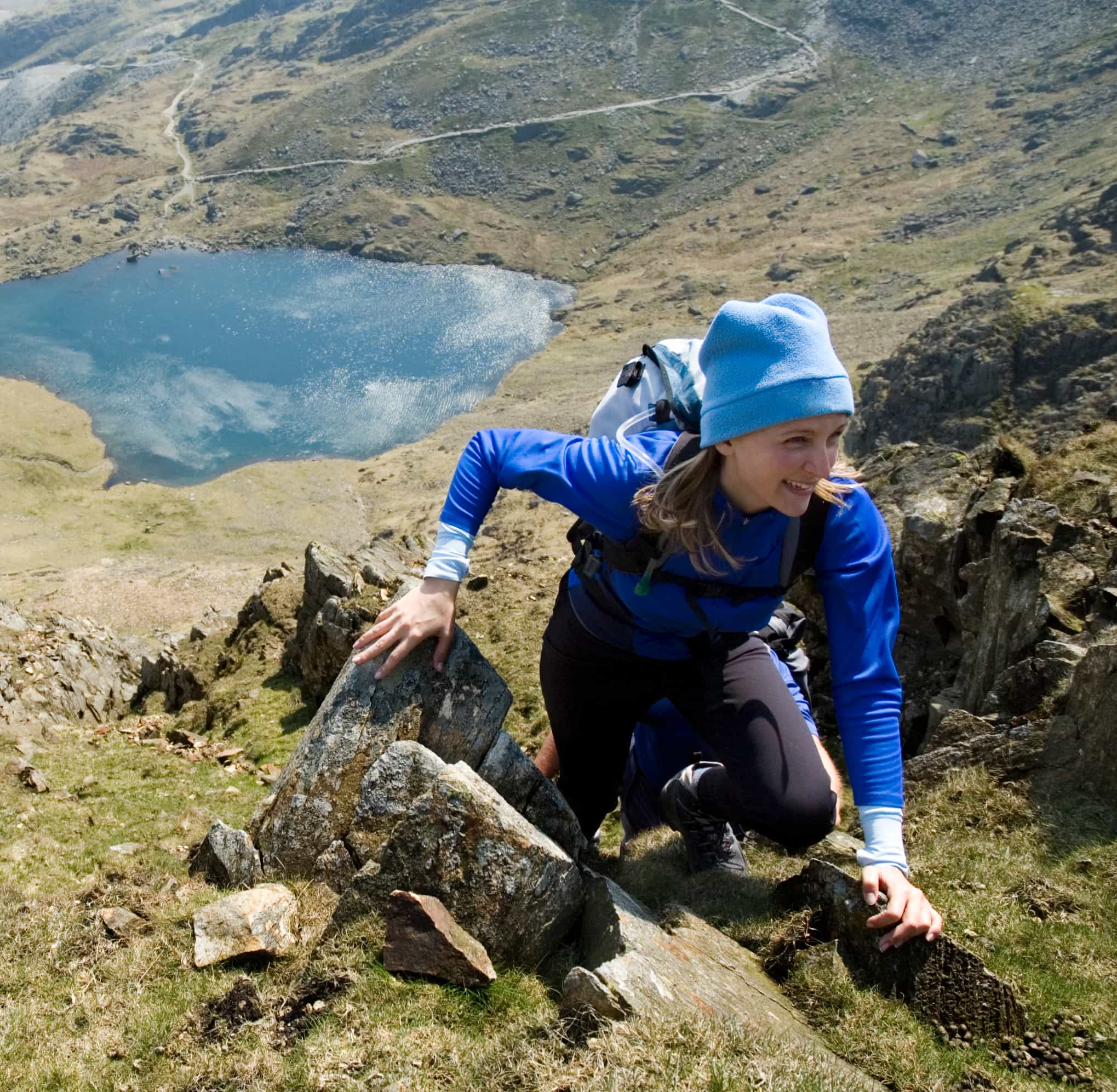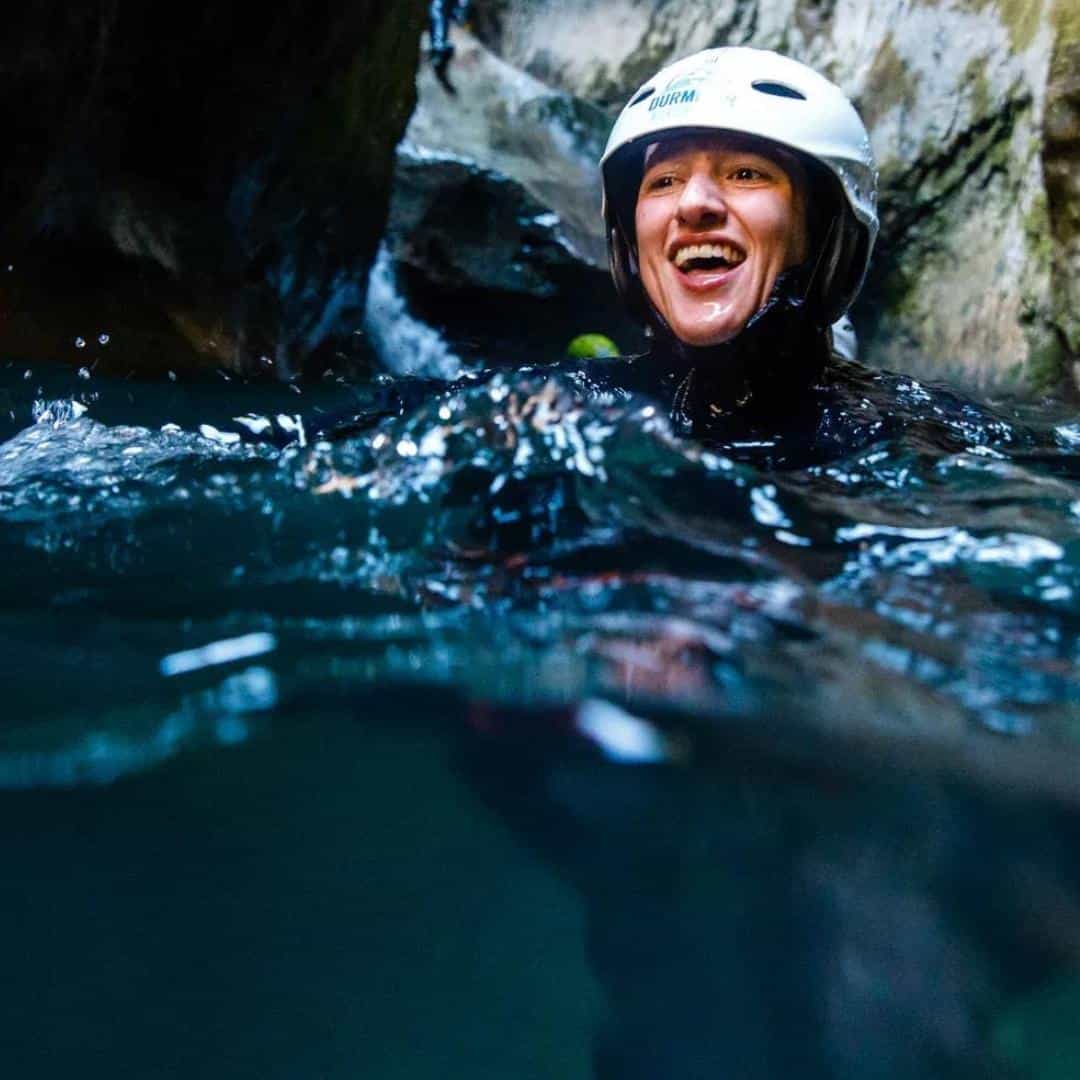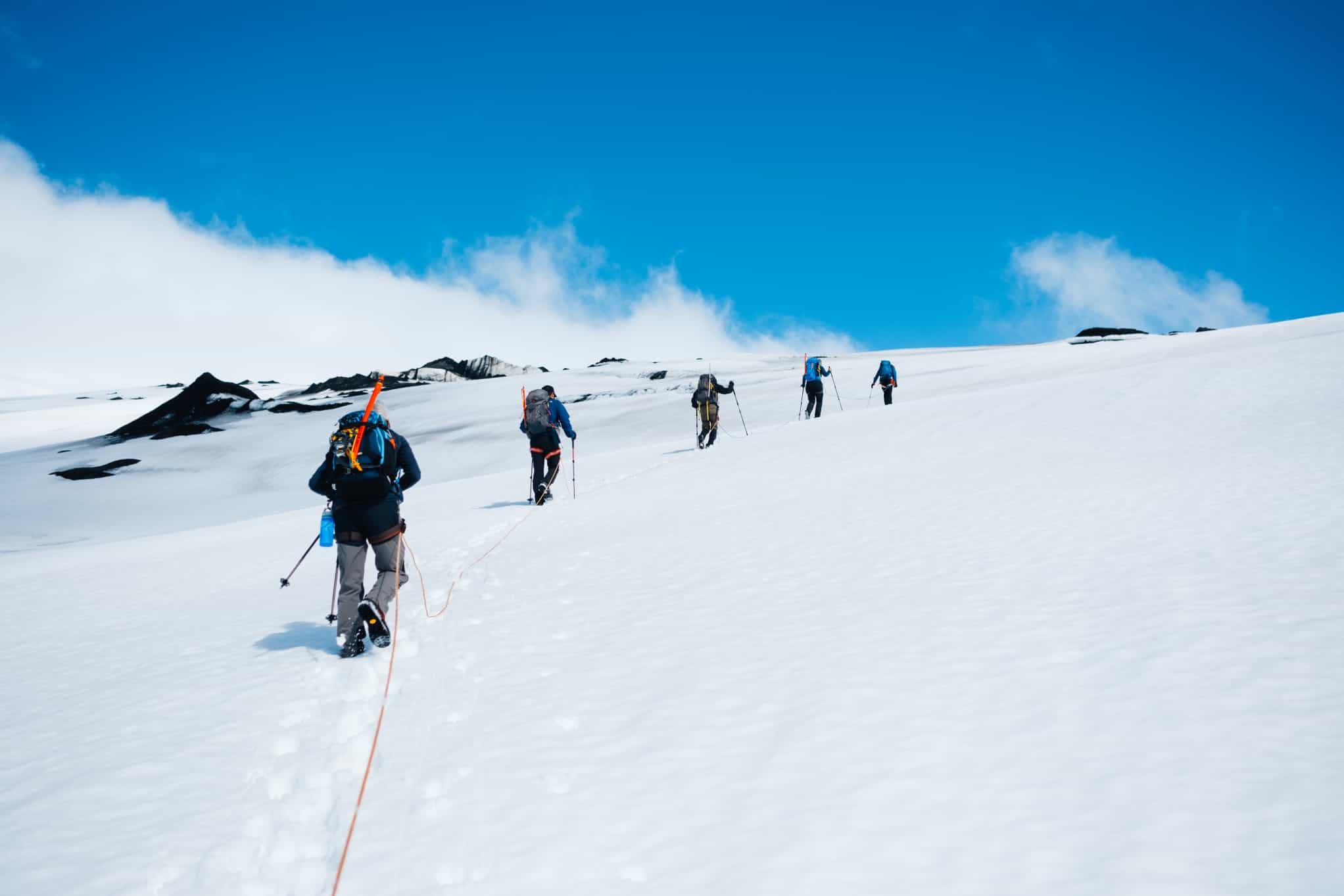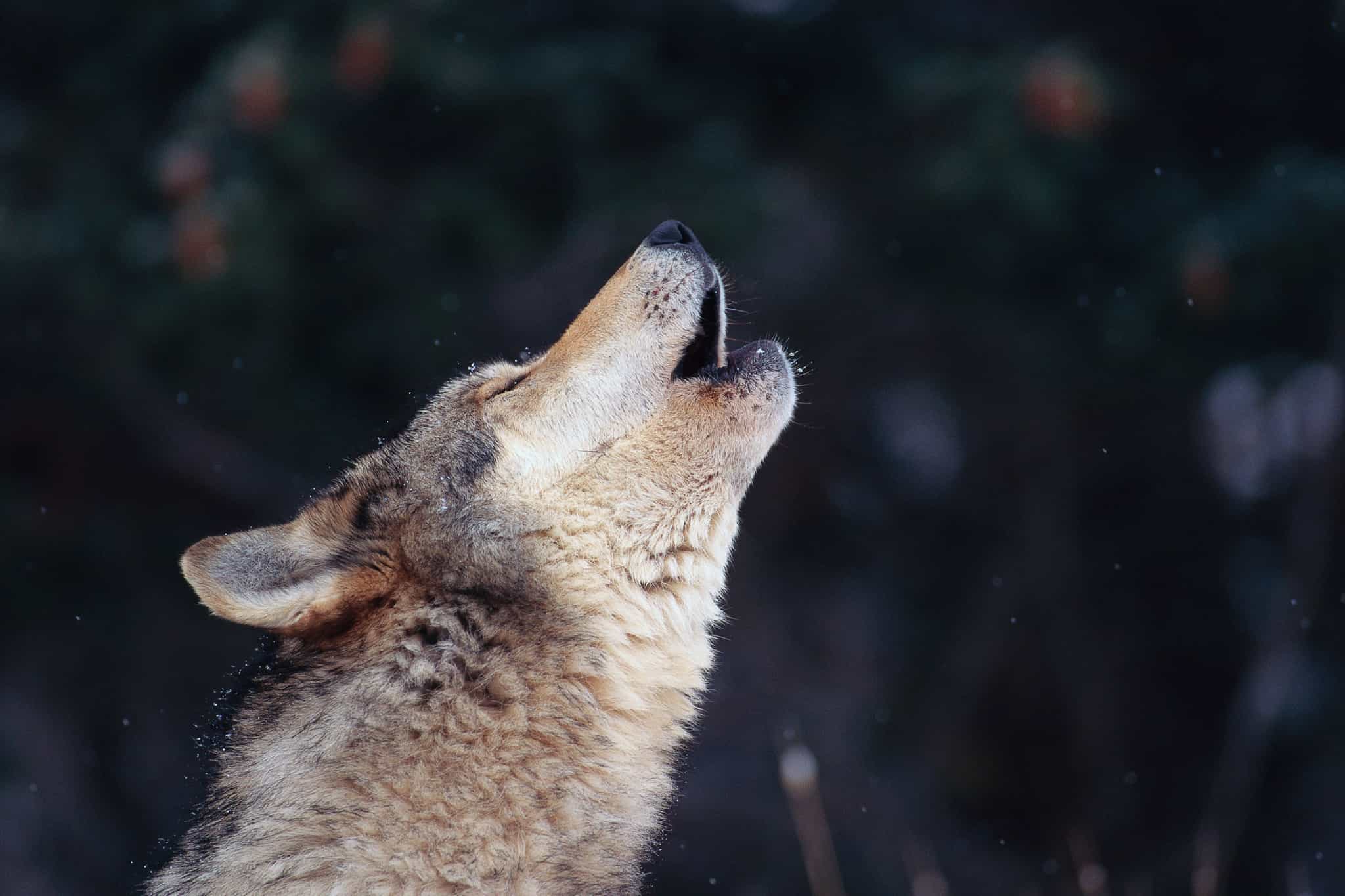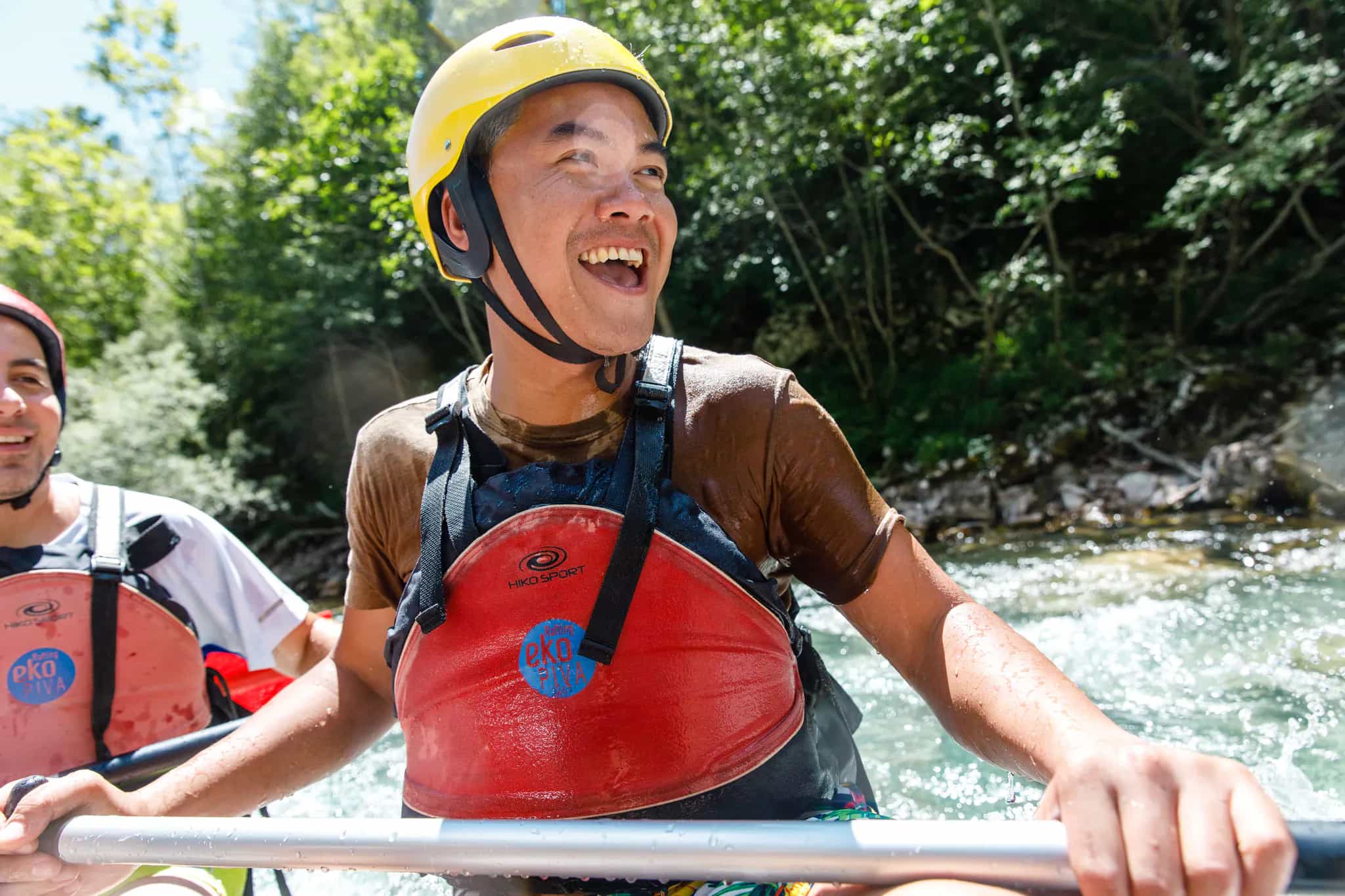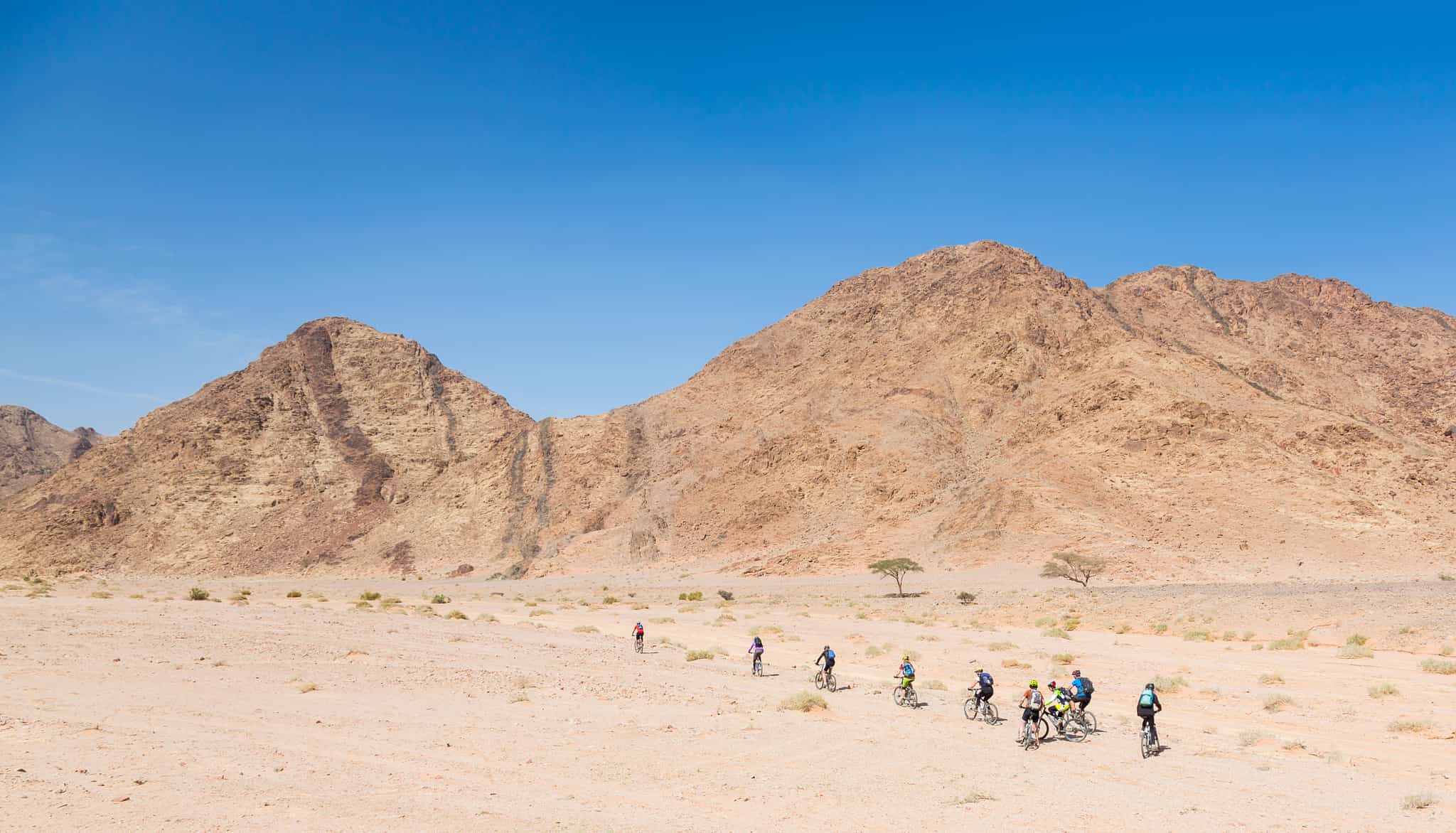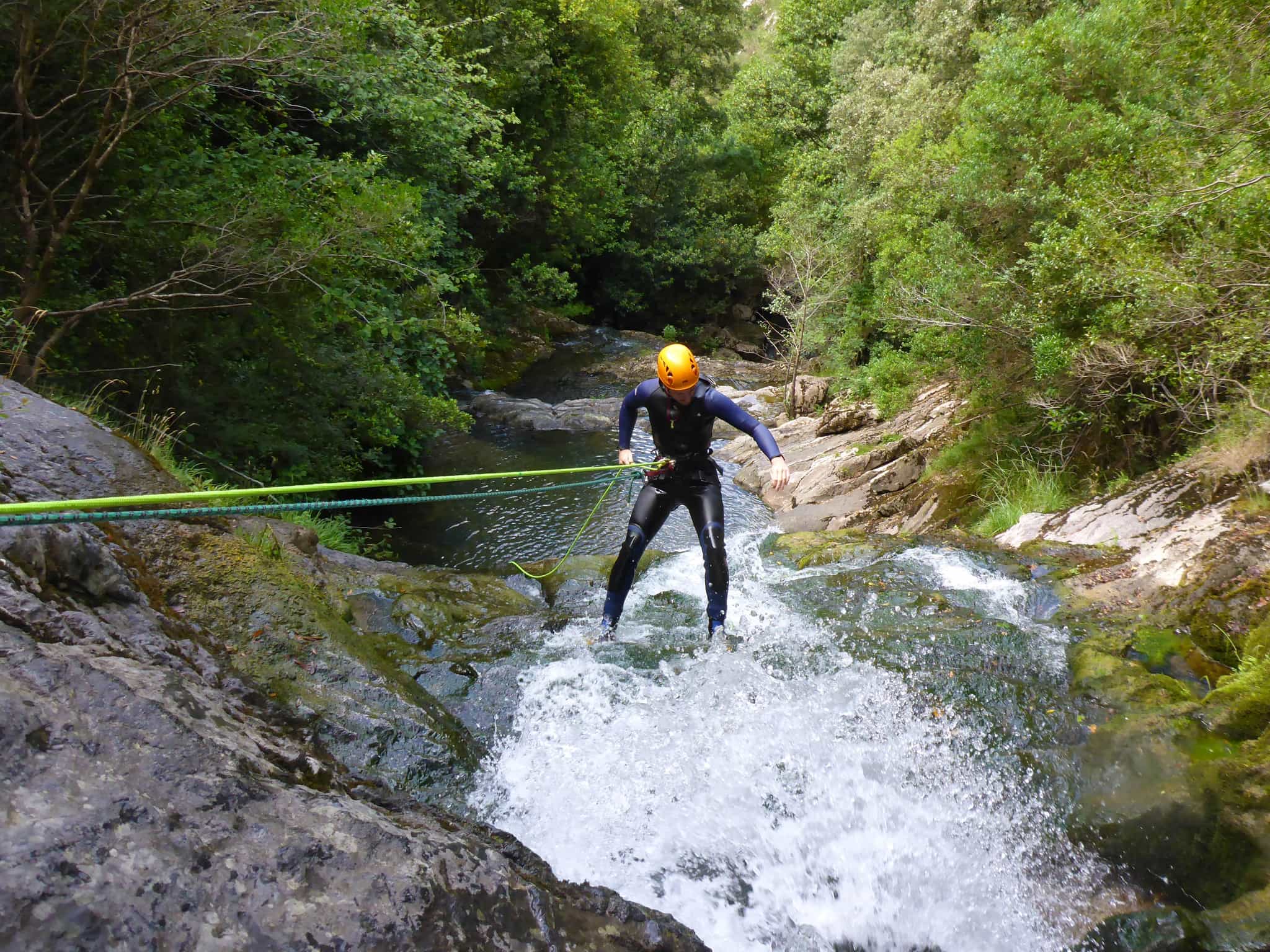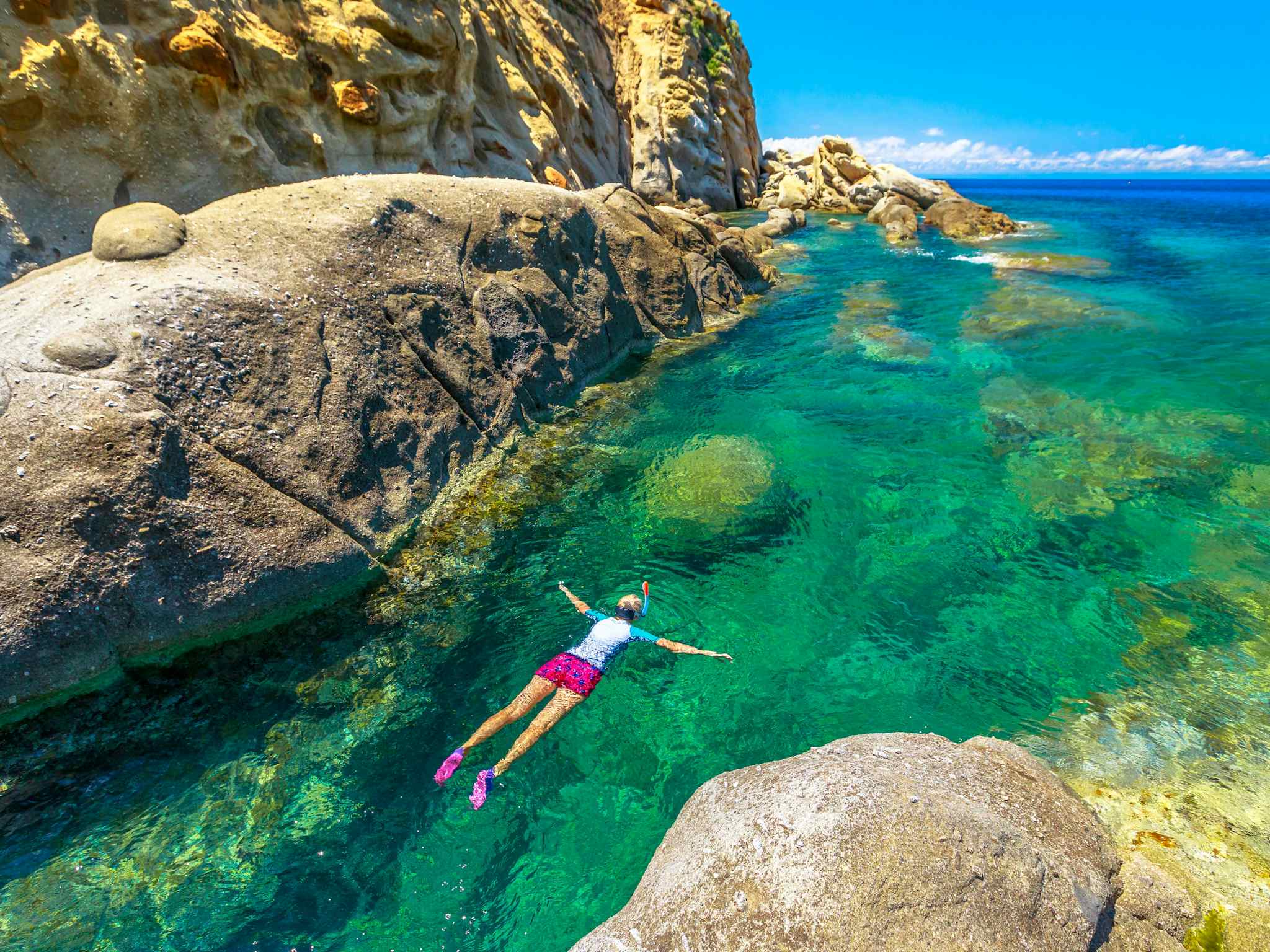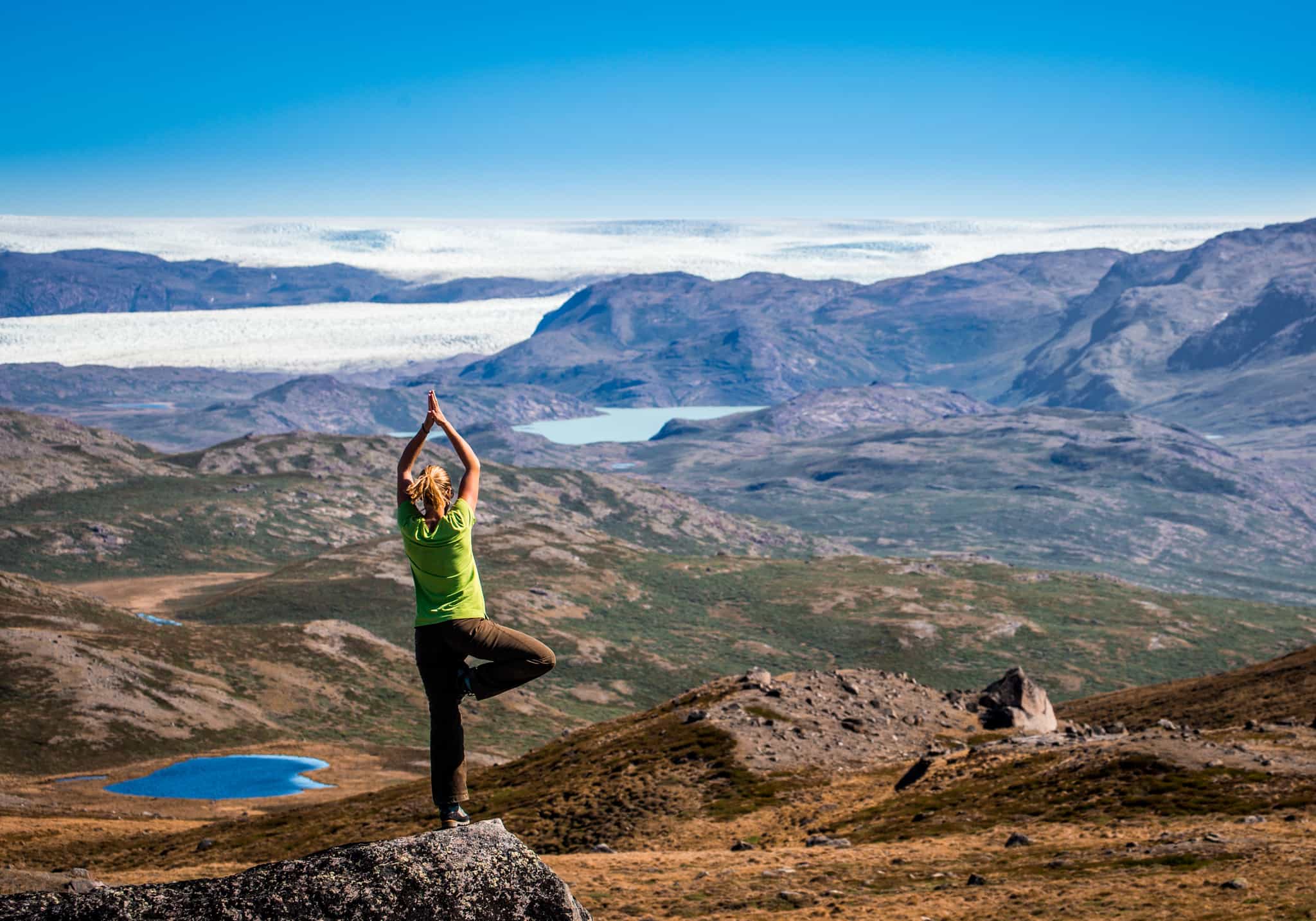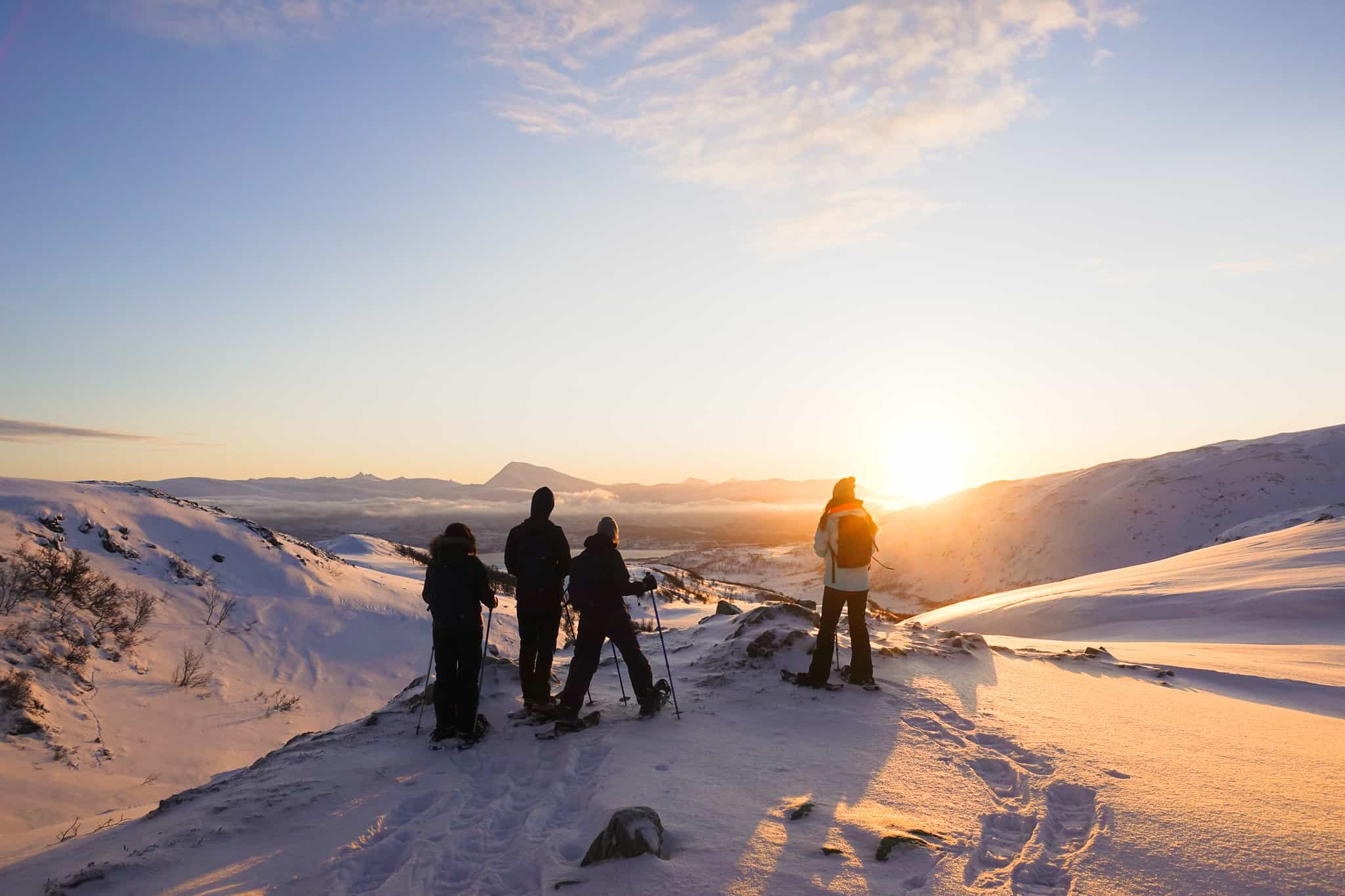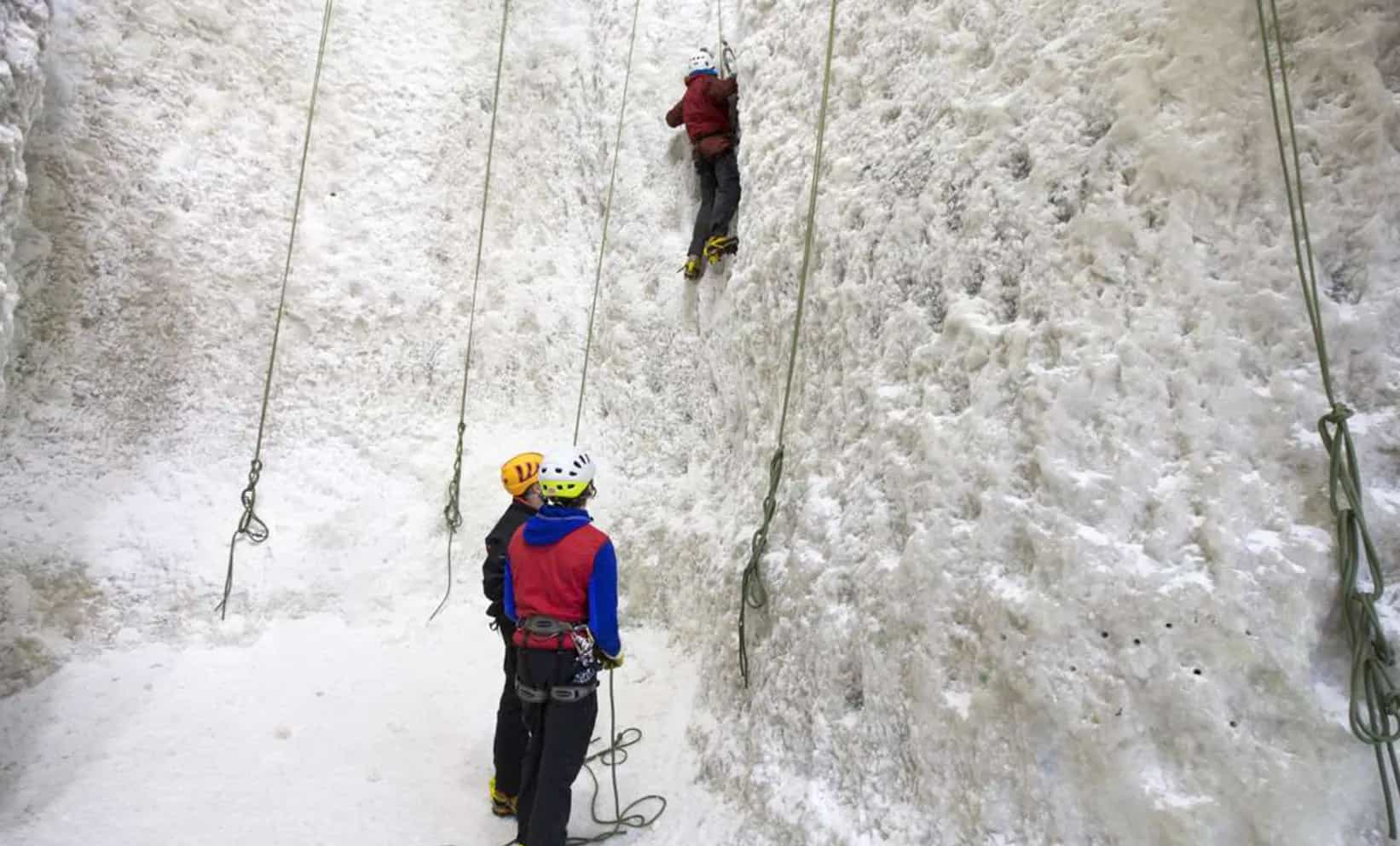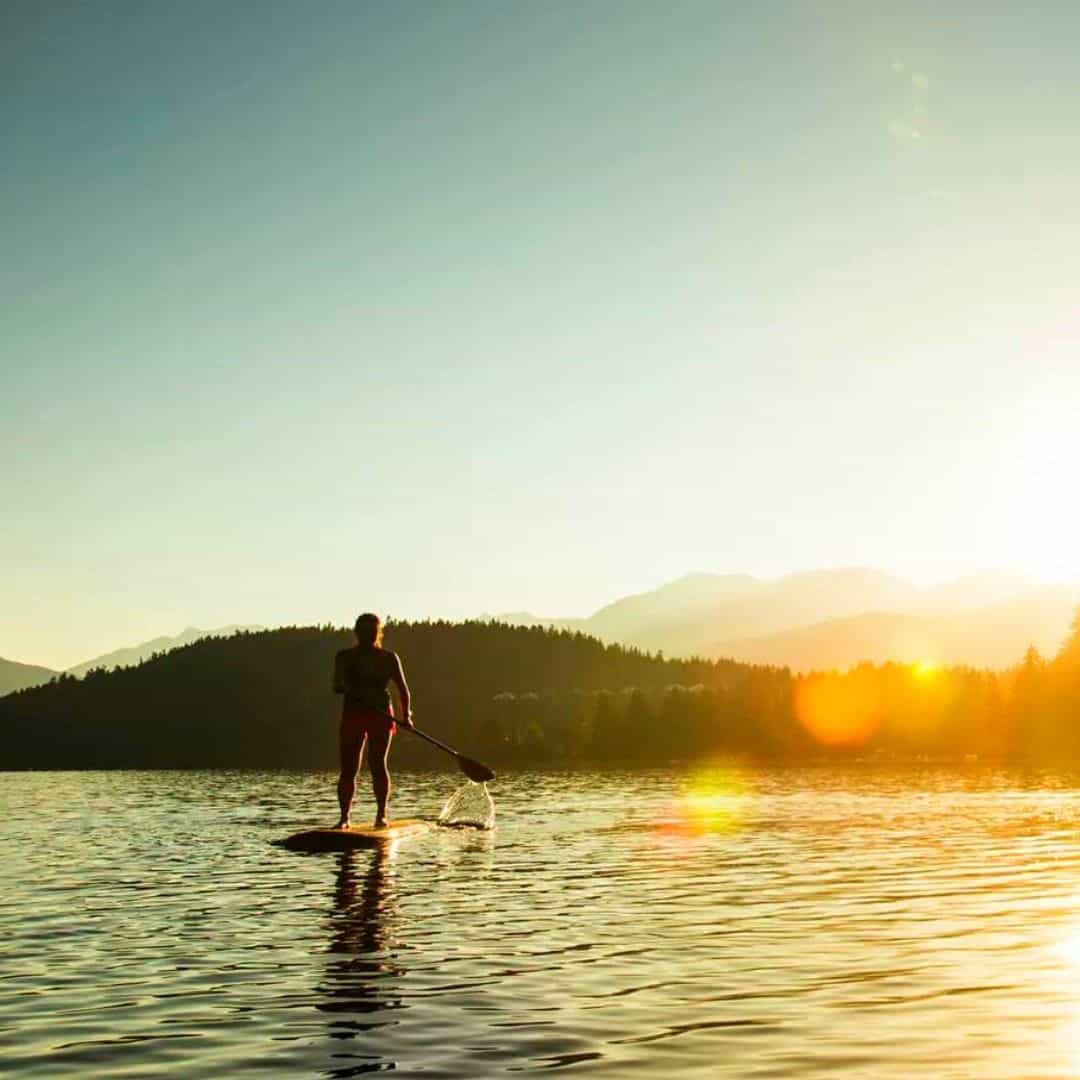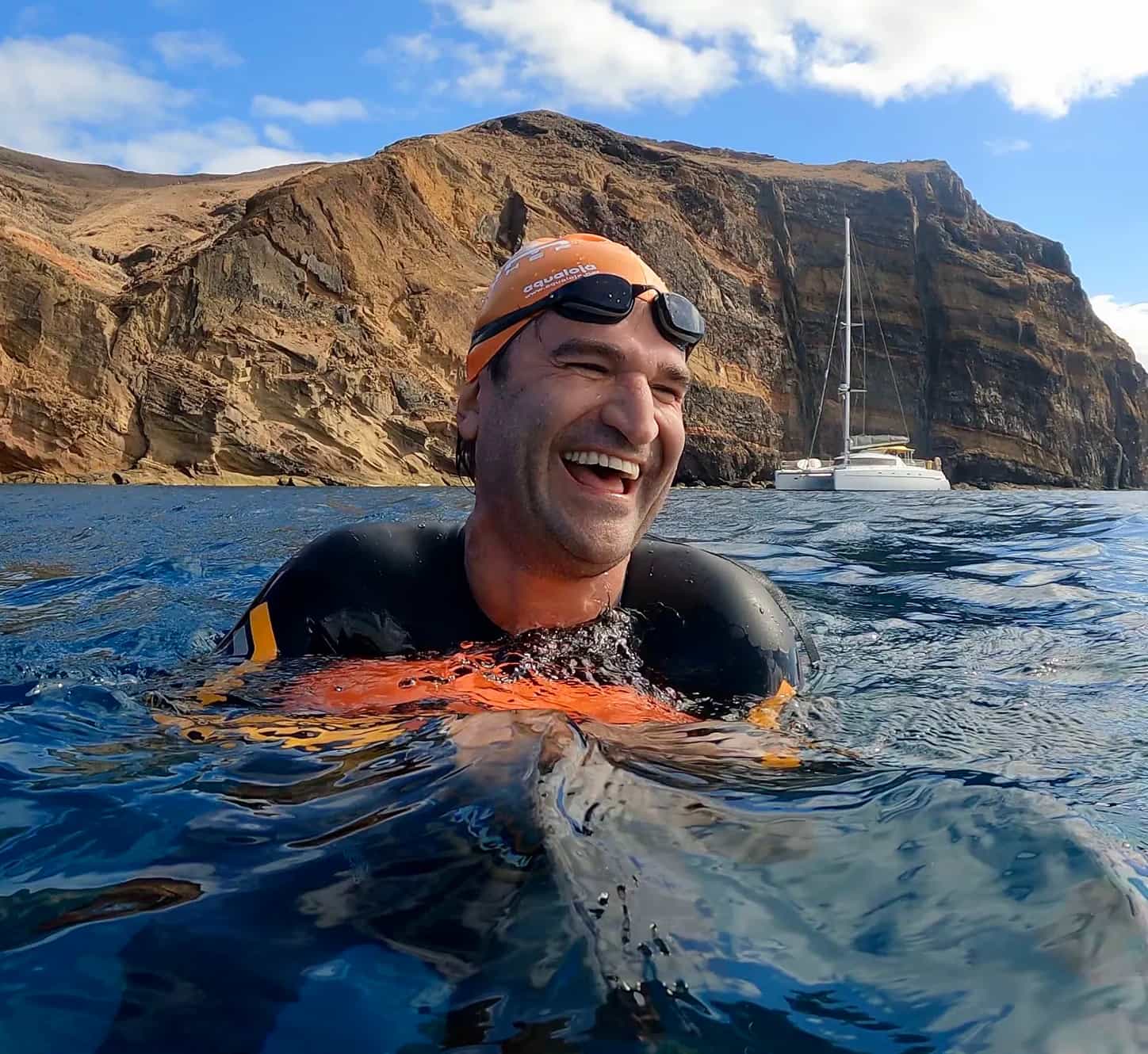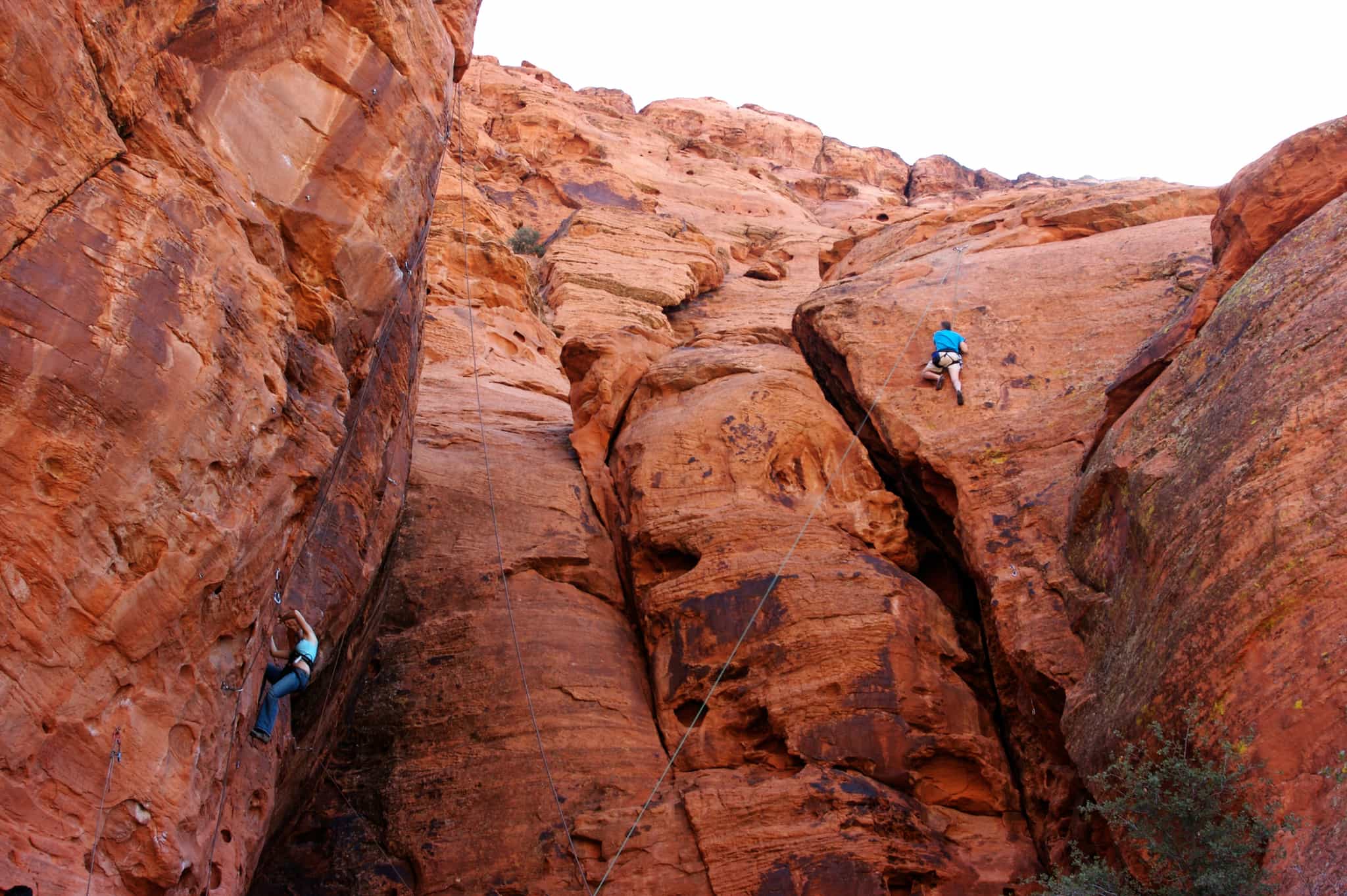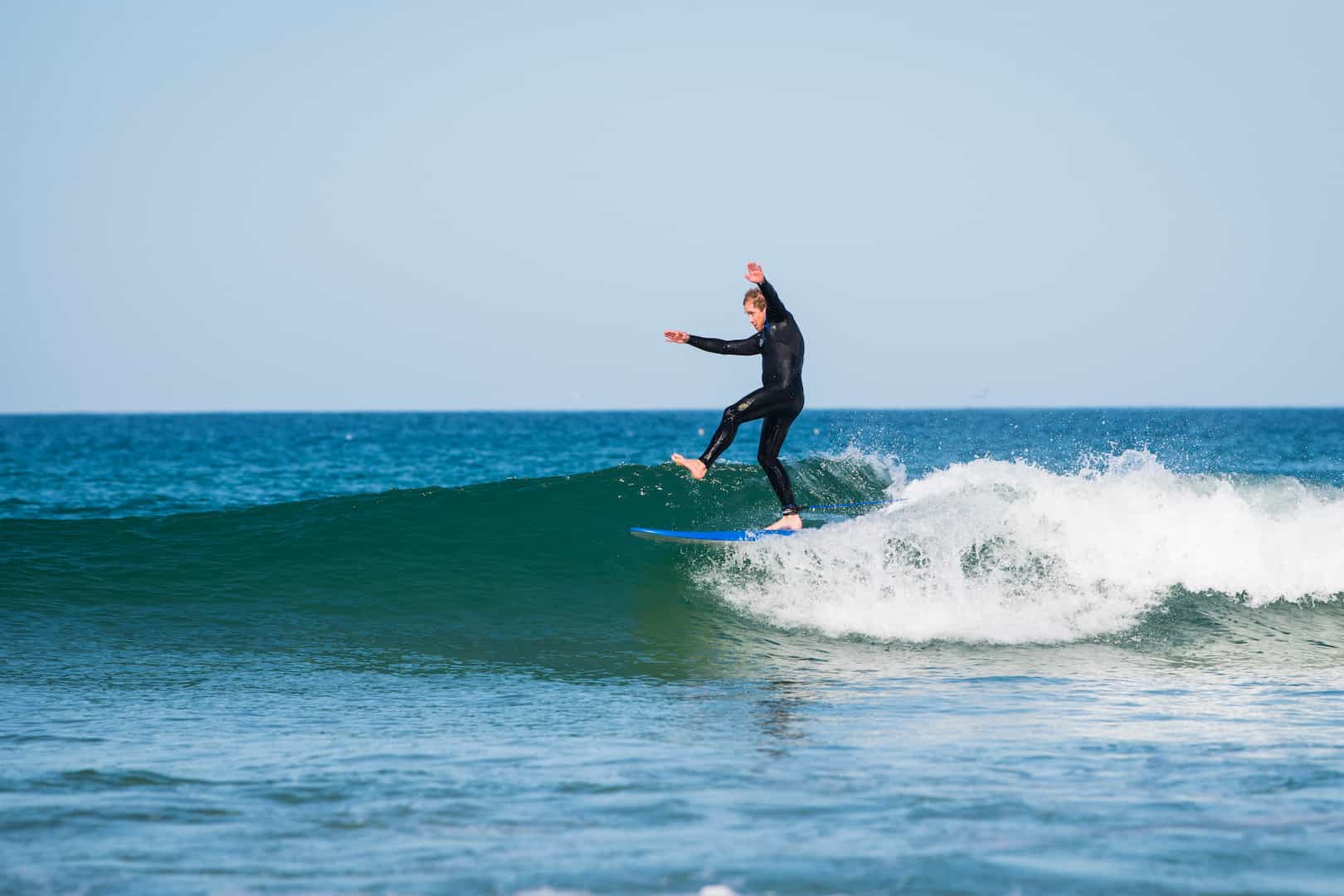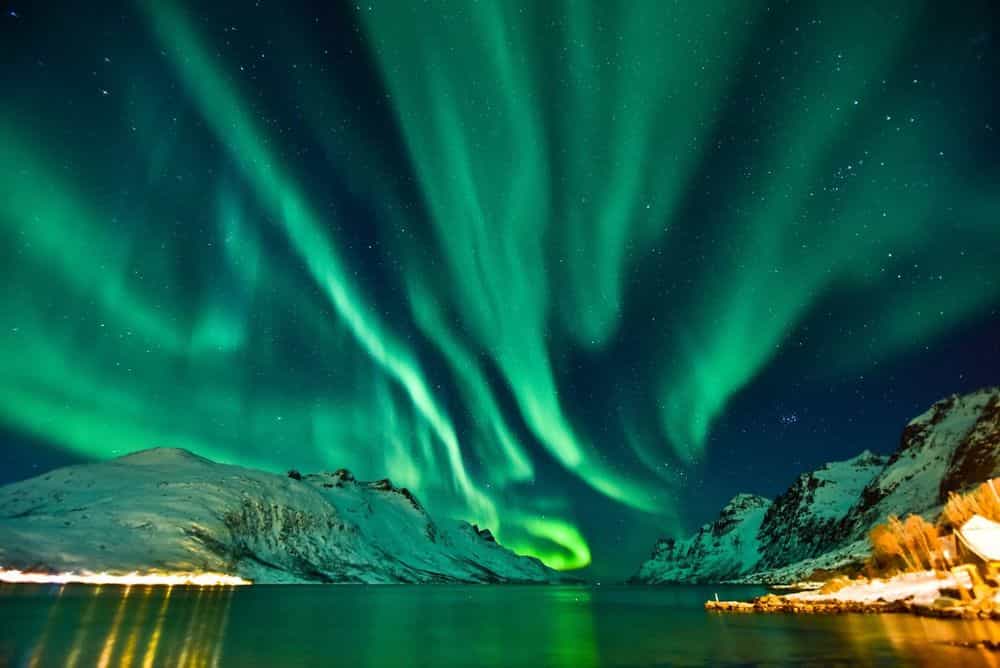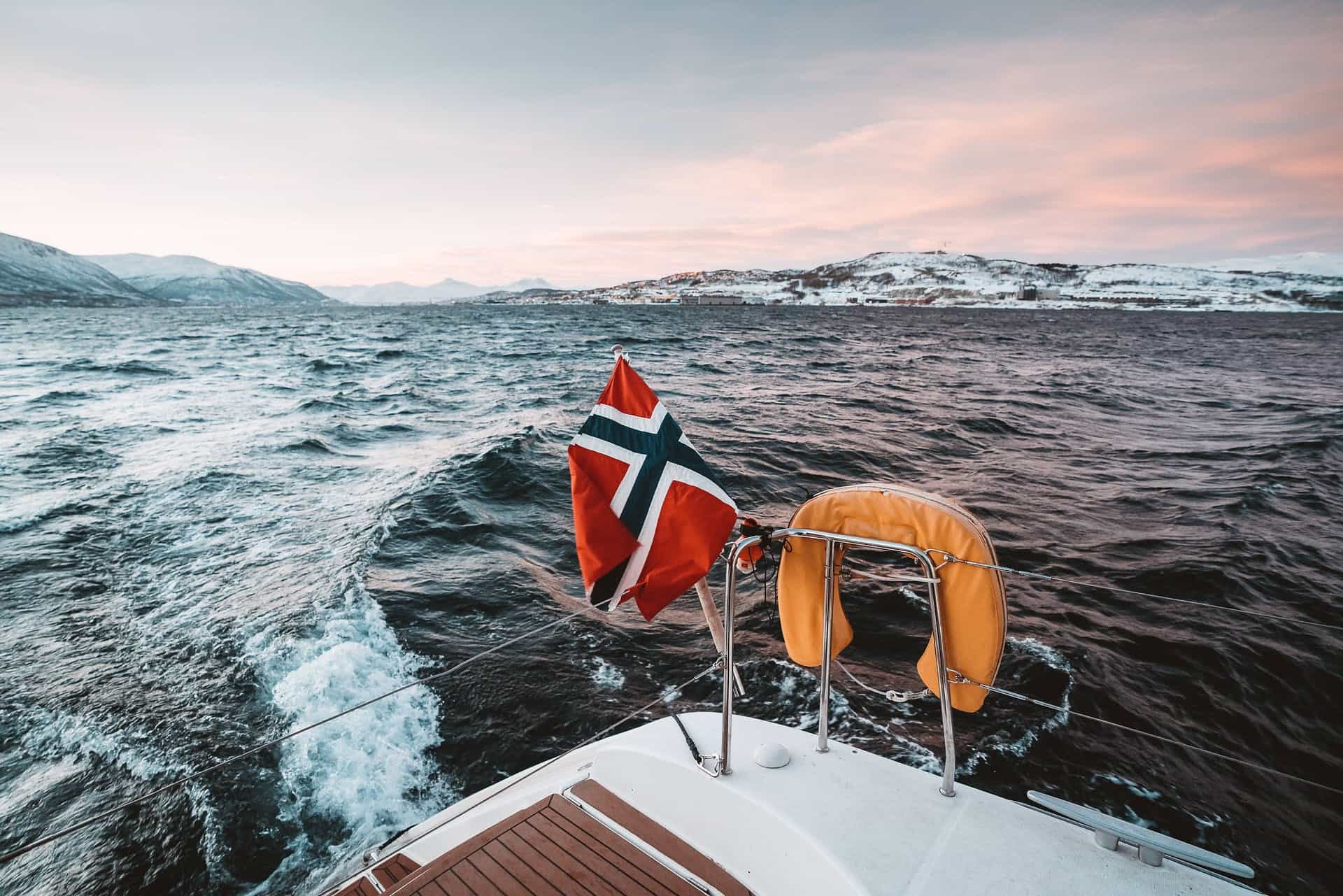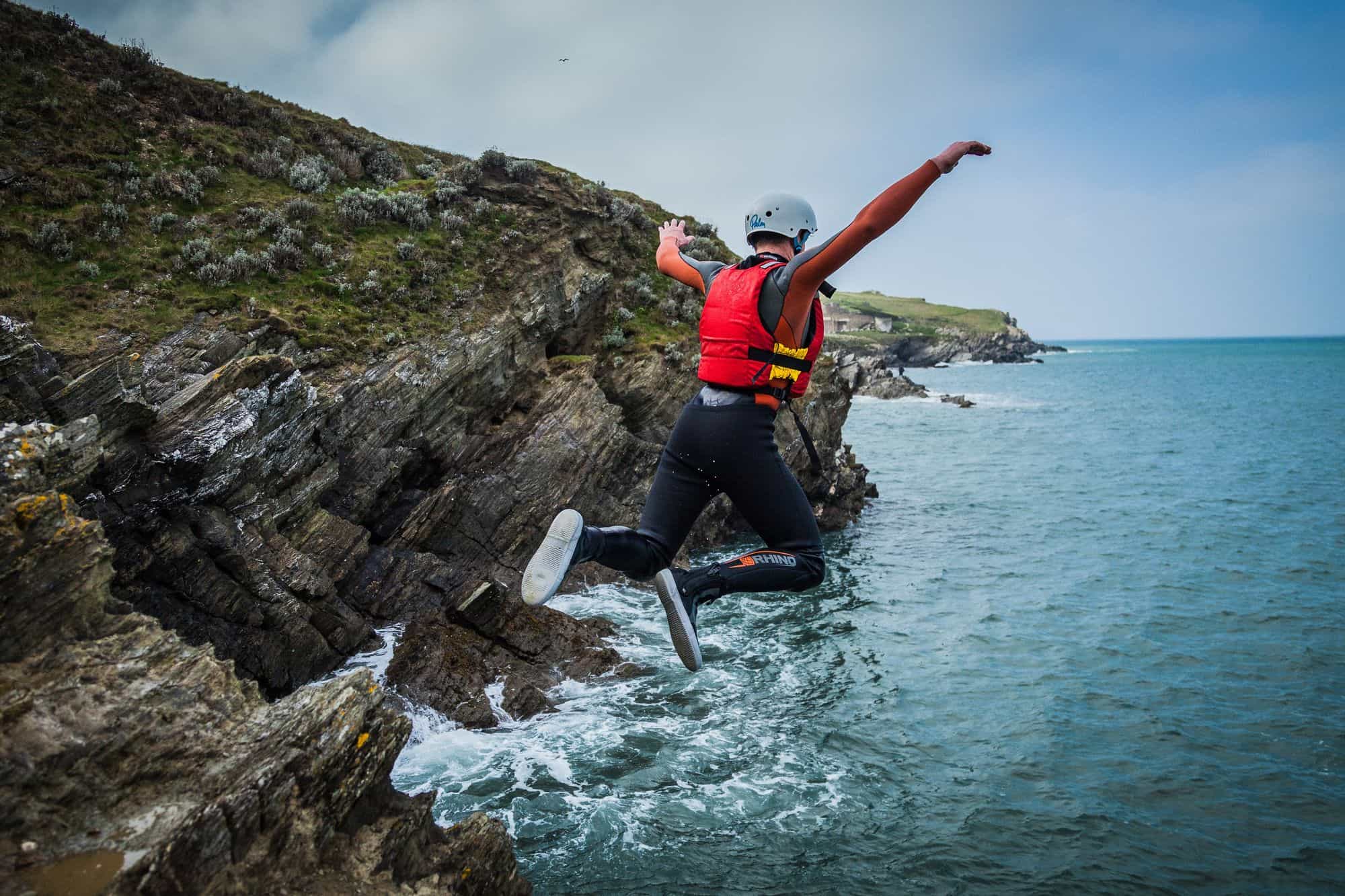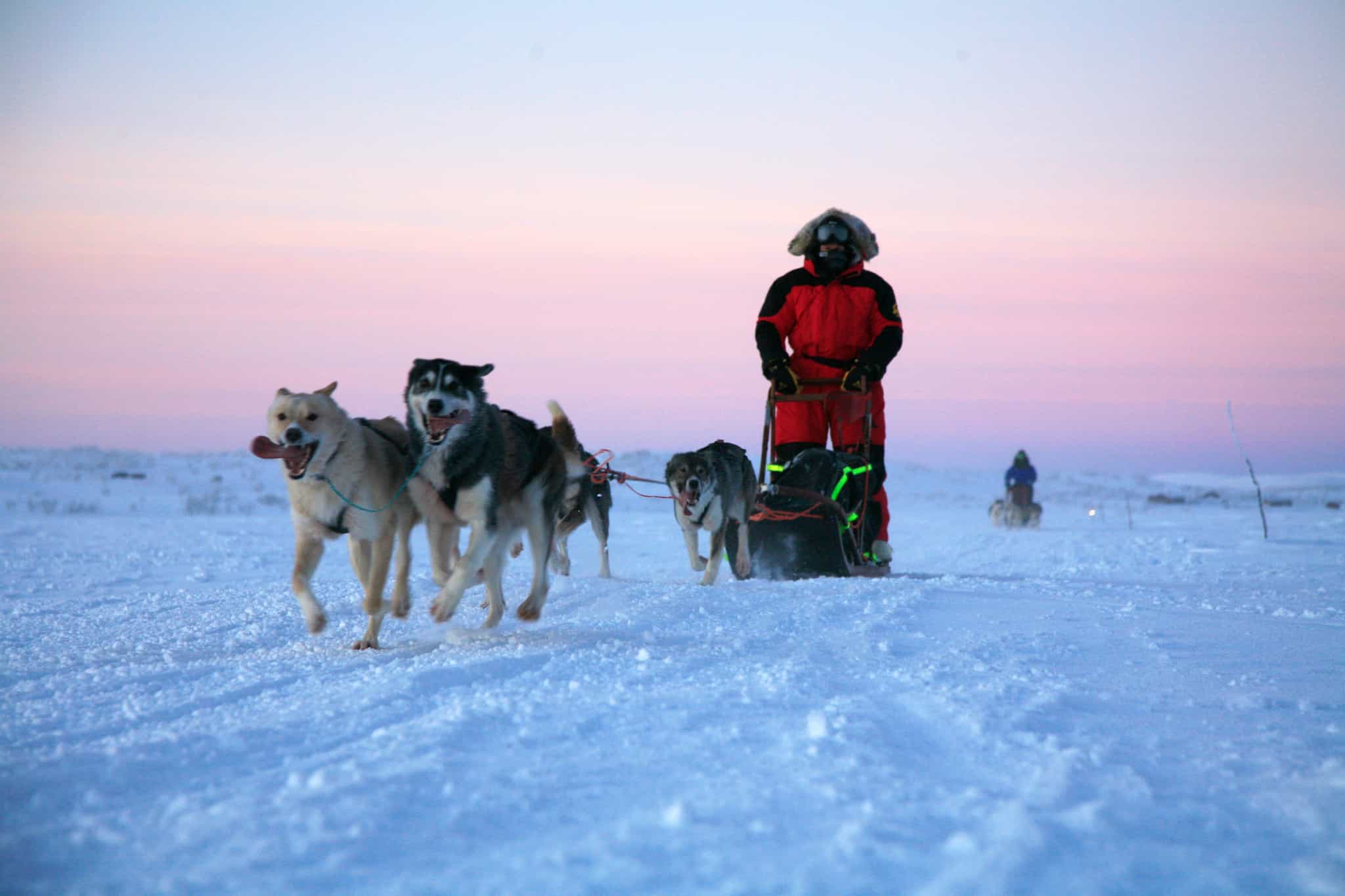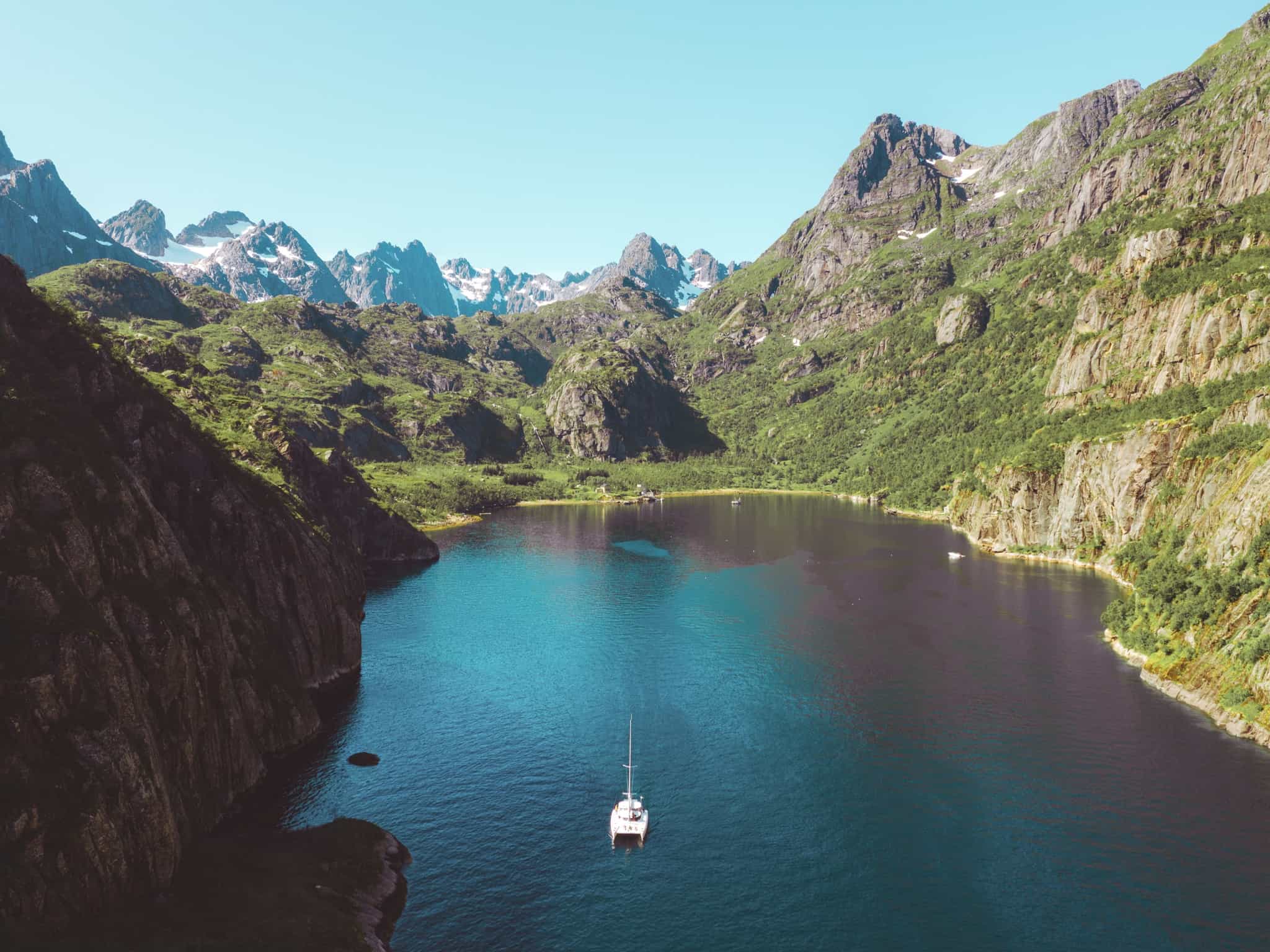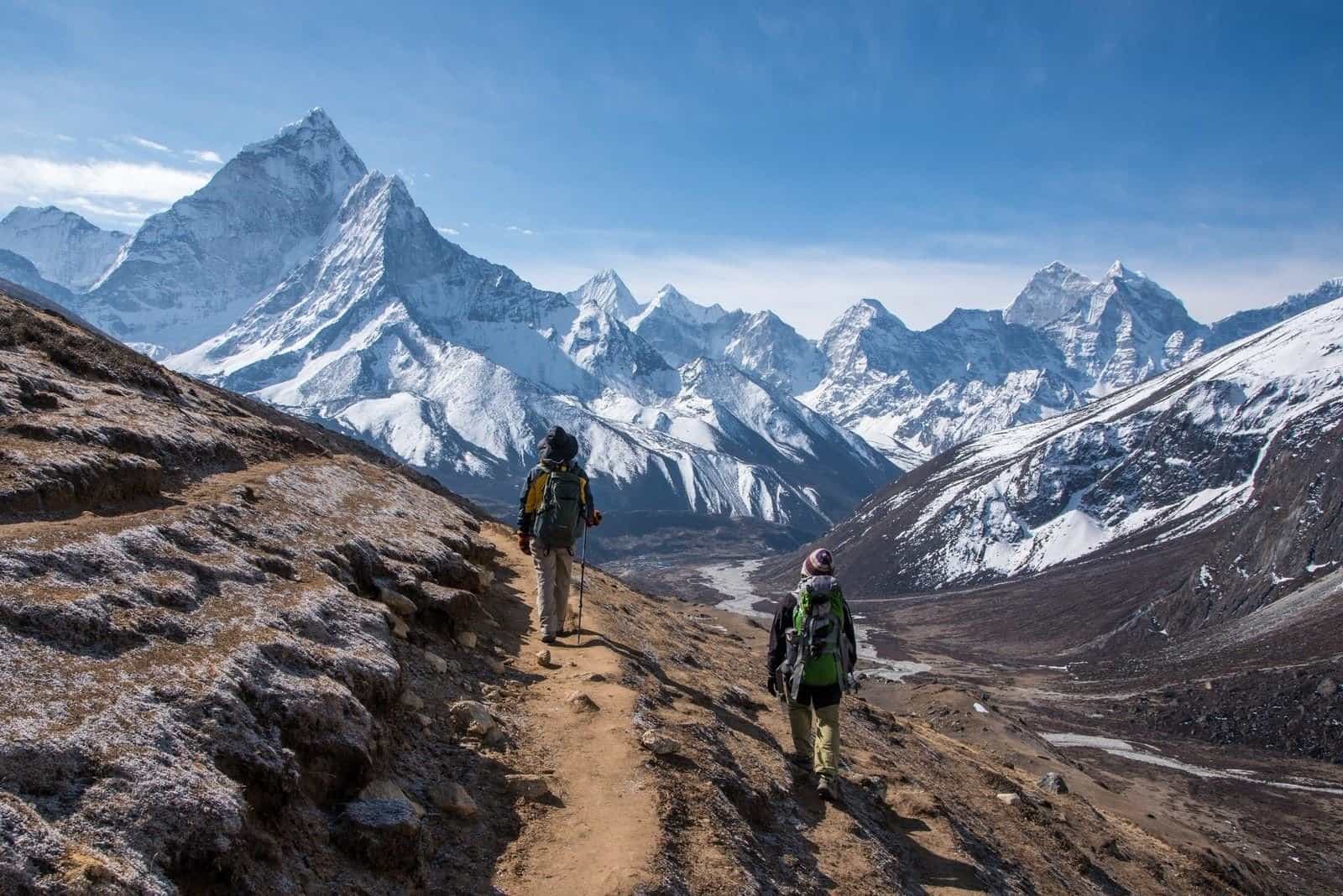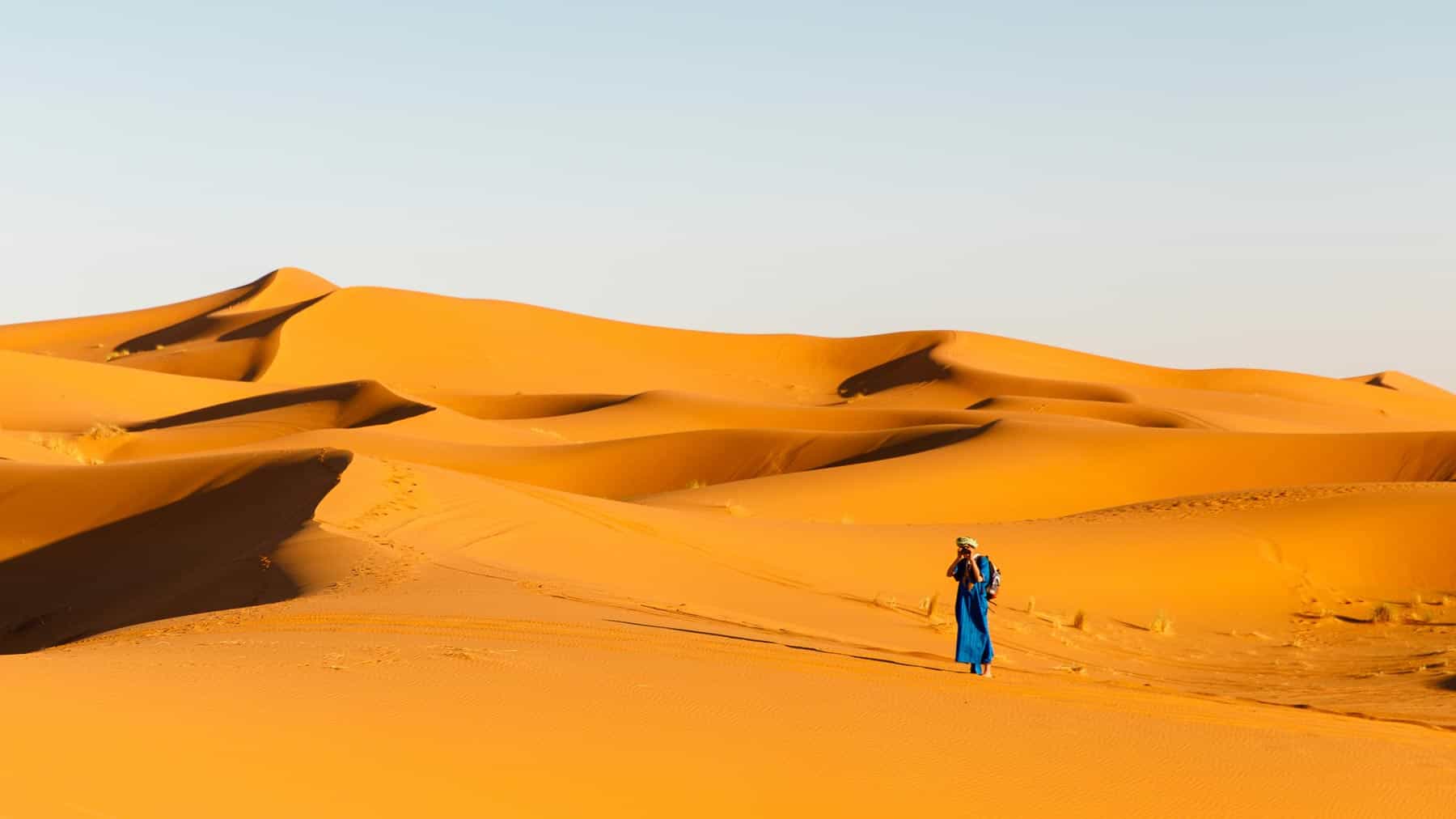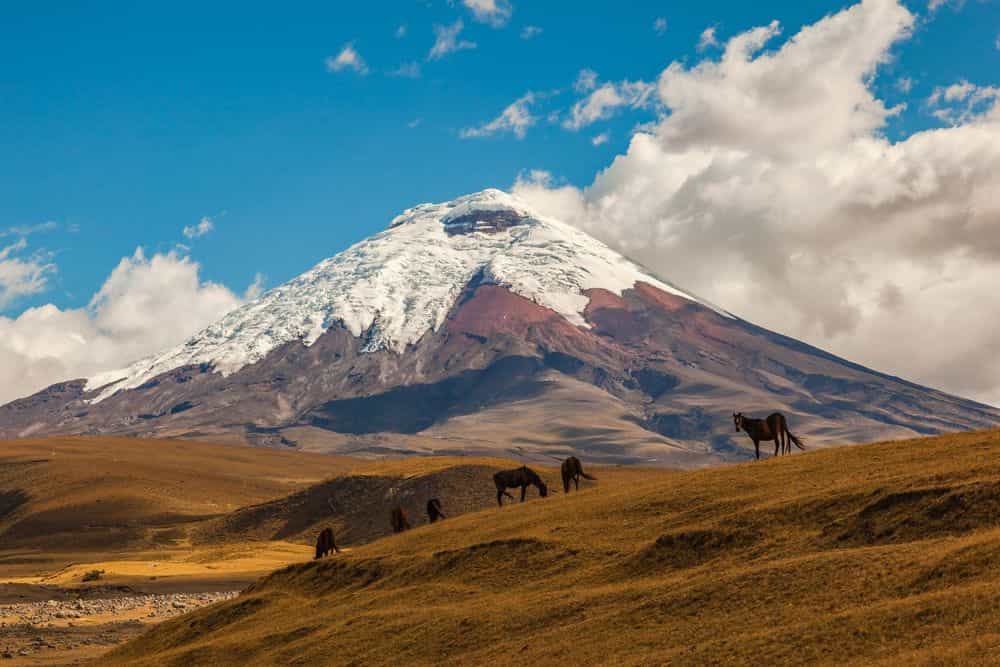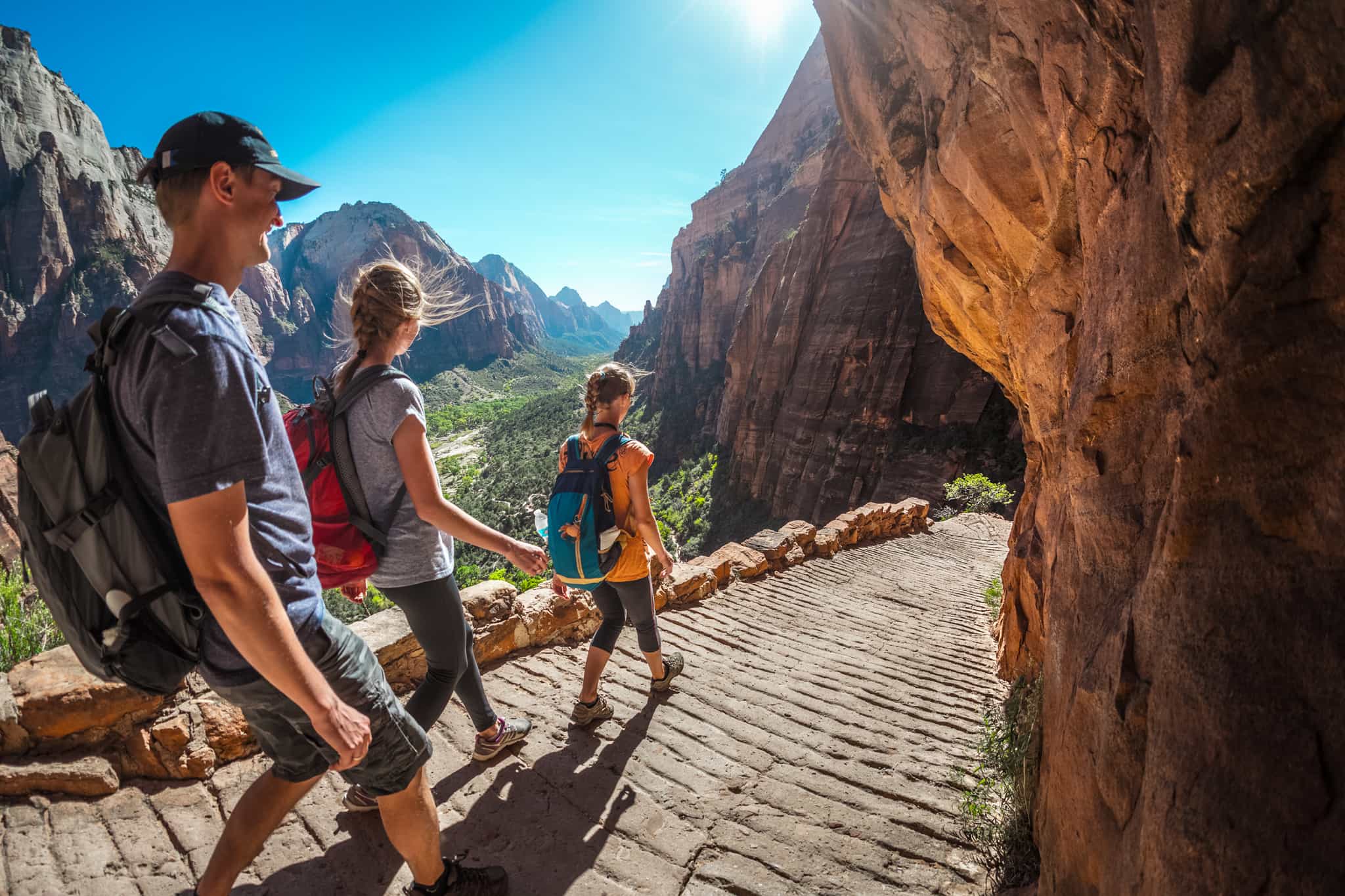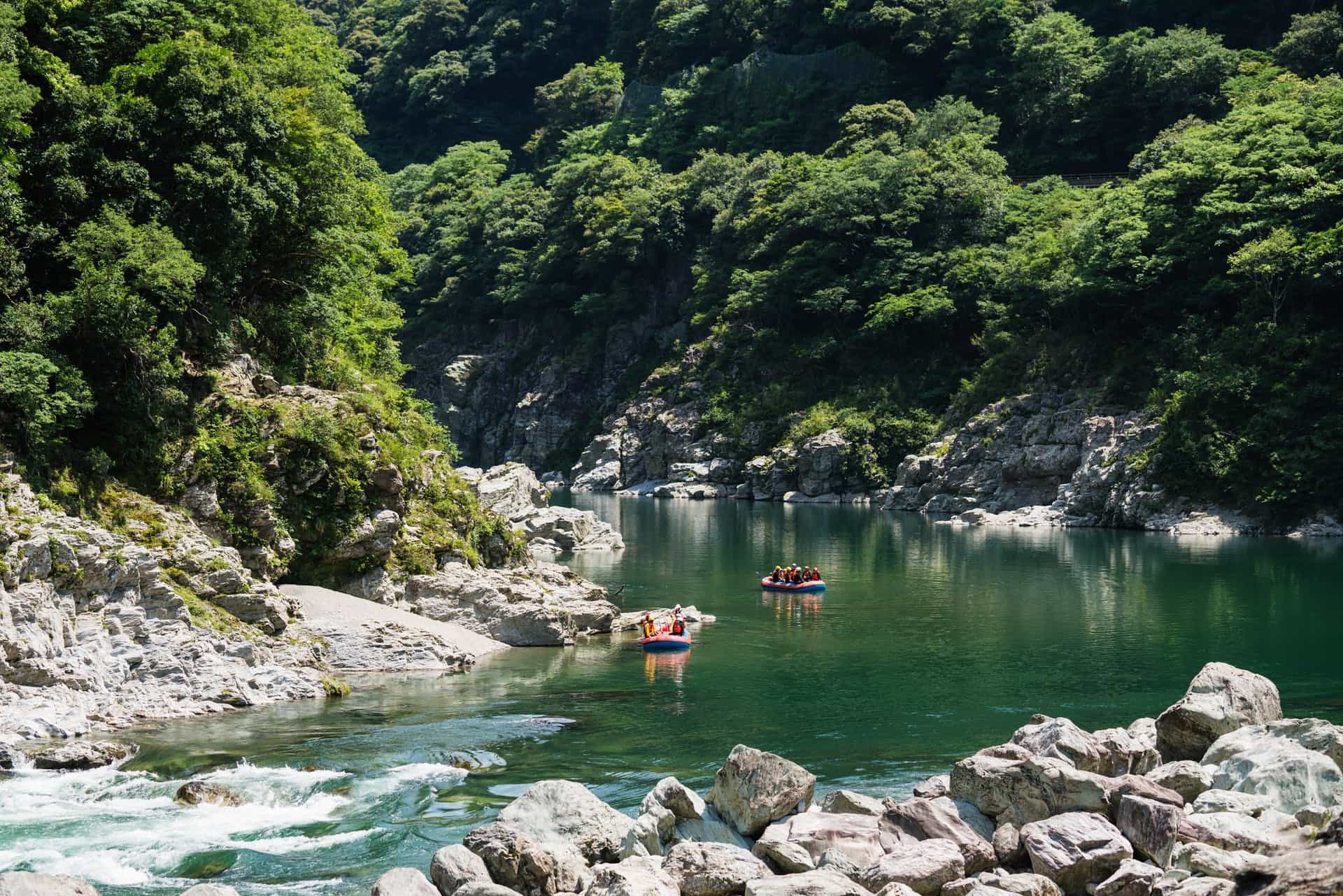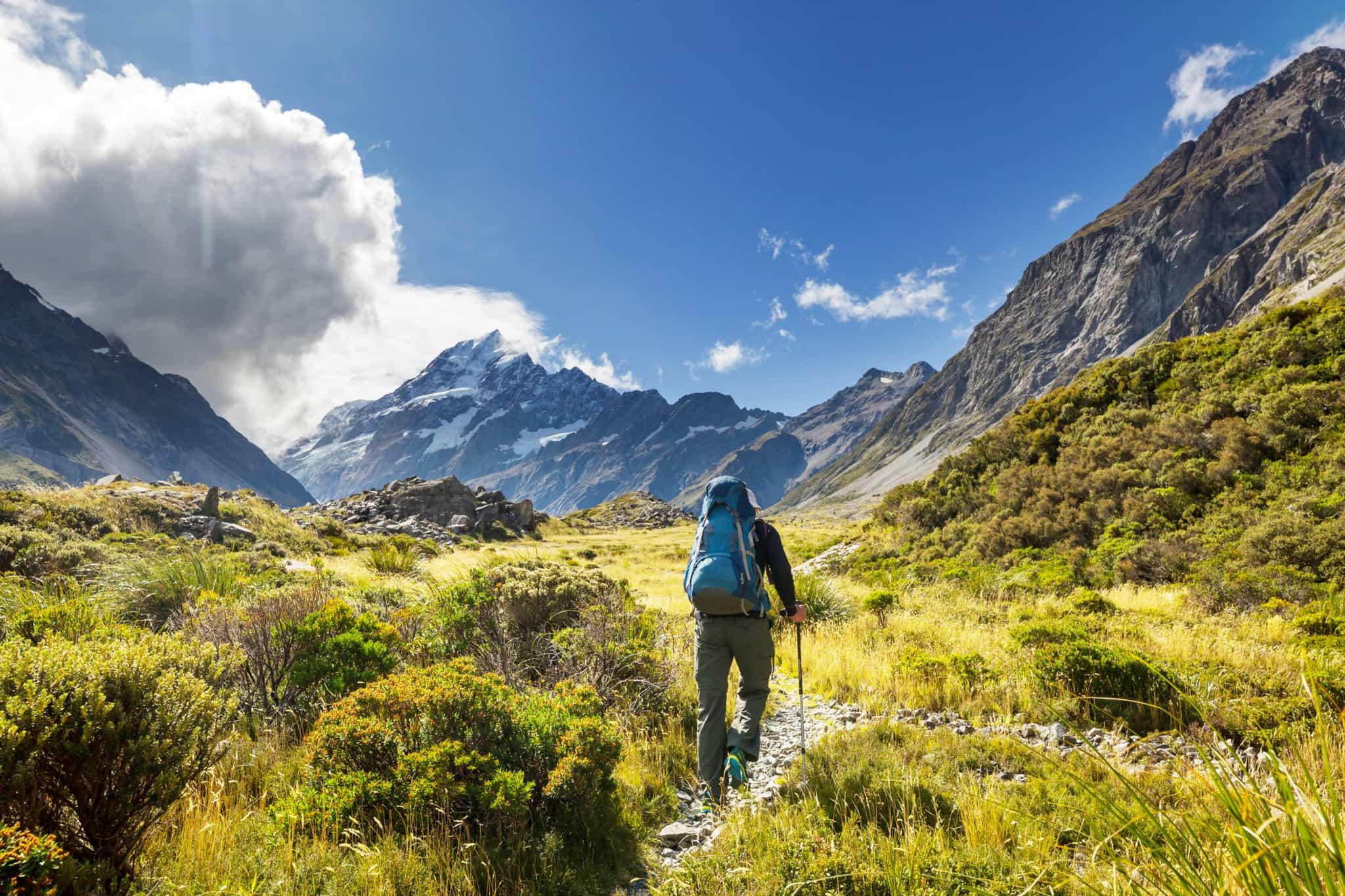
Coast to Coast Expedition Across New Zealand
A once in a lifetime challenge. Hike, bike and raft your way across the staggering landscapes of New Zealand's South Island
What's Included?
Activities & Certified Guides
All itinerary activities with expert, English-speaking local guidesAll Accommodation
6 nights in hotels, 2 nights in a high-country lodge, 1 night wild campingMeals
All meals throughout the expeditionTransfers
All airport and local transfers, plus a support vehicle during the expeditionEquipment & Permits
All your biking, rafting and camping equipment, plus National Park permits and access feesSmall Like-minded Groups
Solo-friendly by design, join our small n’ sociable groups of up to 14 like-minded, active and outdoorsy people…
…
What's it like?















Complete a memorable crossing of one of the planet's most adventure-packed islands, from the Tasman Sea to the Pacific Ocean
Pedal your way along the West Coast Wilderness Trail past glacial lakes as you push towards the mountains
Cross the remote Southern Alps over Goat Pass through the stunning scenery of Arthur's Pass National Park
Paddle the azure blue waters of the Waimakariri River and spend a night wild camping on its shore
Key Information
Day 1
Welcome to New Zealand

Touch down in Christchurch, the capital of the South Island and gateway to one of the most adventure-packed places on the planet. Meet your host at the airport and head downtown to check in to your hotel. Enjoy some downtime to explore New Zealand's 'Garden City,' known for its plethora of parks. You'll meet your guides and fellow adventurers tonight for a welcome dinner and chat through the epic expedition to come.
Day 2
Kicking things off on the West Coast

Cycling
Driving
Head out of Christchurch in the van, enjoying the scenery change as you flow through the Canterbury Plains before traversing the Southern Alps via Arthur’s Pass, eventually arriving in the old gold mining town of Ross. Here you'll get kitted out with your bike as the expedition kicks off. You'll ride the first section of a stunning off-road cycle trail known as the West Coast Wilderness Trail, following old logging tramways pioneered by early settlers through lush native rainforest. After 2-3 hours of easy-going pedalling to warm up ahead of the bigger challenges to come, you'll reach the cool little town of Hokitika, known for its arts and crafts and amazing sunsets. Tonight you'll have fish and chips on the beach overlooking the Tasman Sea, watching the sun go down, and take a dip in the sea to mark the start of your coast-to-coast journey.
Day 3
To the foothills of the Alps

Cycling
Bid farewell to the Tasman Sea this morning as you hop back on the bike, riding out of Hokitika and following the West Coast Wilderness Trail. This route includes a dense bush-lined section of easy single-track called the Kaniere Water Race, which makes for a lovely, flowing ride. Eventually, you'll reach Lake Kaniere, a grand sight nestled in the forested foothills of the Southern Alps, before pushing on to Milltown, a beautiful spot with a rich Māori culture. The trail continues, crossing swing bridges and navigating meandering switchbacks that take you up to a wild west town where you can imagine tumbleweed rolling and gunslingers appearing from swinging saloon doors. From here, you'll cruise downhill, following old mining waterways, bush tracks, and reservoir roads, descending to a beautiful historic hotel in Kumara for dinner and a well-earned night's sleep after your first full day of the expedition.
Day 4
Up and over Goat Pass

Hiking
Swap the mountain bike for hiking boots today for a big challenge ahead. You'll be ascending into the Southern Alps with over 1000m of elevation to conquer. To reach the trailhead for today, you'll take a short transfer from Kumara to Morrison's Bridge - the road on this section is not suitable for cycling. From here you'll set off following a rugged riverbed with a long, gradual uphill for the first half of the day, eventually tackling a scramble to cross the aptly named alpine pass. There are long stretches of boulder hopping and some clambering along rocky terrain with multiple river crossings as you reach the high point of this section, reaching a small backcountry hut for a rest and some lunch. An additional guide joins the group for the whole day to help with the crossing of Goat Pass. This requires a determined push from the group, and your skilled guides will keep everyone on track and safe in an area where the weather can change quickly. Down the other side of Goat Pass, you'll descend into the headwaters of the Mingha River and follow the valley southwards to the end of an epic day of trekking, reaching the confluence with the Bealey River. A short transfer takes you to your accommodation in Arthur’s Pass, a stunning spot nestled beneath looming peaks.
*In the event of severe bad weather, an alternative hike will be undertaken, either climbing up to the mountainous Temple Basin above Arthur’s Pass or a lower bush walk visiting Bealey Chasm and Punchbowl Falls.
Day 5
Push on through Arthur's Pass National Park

Hiking
Cycling
Head back to where you left off yesterday at the Bealey River, hiking up a tussock ridge to the historic Bealey Hut, which offers epic views of the vast Waimakariri River and the high peaks of Arthur’s Pass National Park. Descend from this spot to switch your hiking boots back for your bike as the pedalling gets going again. The next leg involves riding along an elevated gravel road with majestic river and mountain views as you make your way to the remote Mt White Station, a 40,000-hectare working high-country station set amidst rugged peaks and remote valleys, with an amazing sense of isolation. This marks the end of the first half of the expedition as you settle into your accommodation in converted shearers’ quarters and enjoy a delicious home-cooked dinner in this cracking spot.
Day 6
Rest day at Mount White Station

Today is a day to kick back and relax in this amazing location or take on any number of activities on the farm. If you're keen for more pedalling, you can get back on the bike to ride private farm roads up the valley to Esk Hut and the Lochinvar valley, through vast plains past the historic site of the old Lochinvar homestead and Mounds of Misery (ancient glacial moraines), and continue on towards Bull Creek. Learn about honey bees and beekeeping on a three-hour course (a speciality of the owners of your base for the rest day), keep cool on a SUP or kayak on the adjacent Lake Letitia, or take a soak in a hot tub. Totally up to you!
Day 7
Raft the Waimakariri River

Rafting
Cycling
Back on with the expedition, bid farewell to Mt White Station and hop on the bike to roll down from this remote spot to reach the banks of the Waimakariri River, which flows through Arthur’s Pass National Park. Pedal alongside the river to reach Gooseberry Flats, where your rafting crew will be waiting. Load up the overnight gear onto the rafts and paddle down the startling blue Waimakariri River surrounded by mountains; a quintessential epic New Zealand scene. After a few hours tackling small rapids and meanders while pushing on to make the distance, you'll set up camp in a beautiful spot on the side of the river. Grab a swim in the river before gathering round the campfire for dinner out in the wild. Tonight, you have the choice to sleep in the tents provided, or for an extra memorable night, you can sleep out in a hammock amongst the trees.
Day 8
Raft to the Canterbury Plains

Rafting
Continuing to float down the Waimakariri River through more stunning mountain scenery, you will negotiate some easy rapids to the end of the gorge as the river spills out into the Canterbury Plains. Here you'll disembark, and a short transfer will take you to Springfield, a quirky place that embraced its namesake fictional town from the TV show The Simpsons, honouring it with true Kiwi humour by erecting a giant pink donut. After a wild couple of days on the river, you can soak up some civilisation with an evening in the local bar, giving you an opportunity to meet the locals, play pool, and tell stories from your expedition so far.
Day 9
Hot pools at the finish line

Cycling
Return to where you left off yesterday on the banks of the Waimakariri River as the final leg of your epic journey gets underway. Enjoy a dreamy, relaxing downhill section through rural countryside and the pastures of the Canterbury Plains, meandering your way closer to the finish line. Follow some more easy flowing trails through Bottle Lake Park before finally reaching the Pacific Ocean as you roll onto the beach at New Brighton. After high fives on the beach and a symbolic toe-dip in the Pacific, head to the Taimoana Brighton Hot Pools overlooking the ocean for an official celebratory drink and a well-deserved relaxing soak in the hot pools. Transfer to Christchurch for a final dinner and beers in a proper Kiwi pub to toast the completion of your epic coast-to-coast adventure.
Day 10
Farewell New Zealand

Say goodbye to your guide and fellow adventurers as the trip comes to an end this morning. If you are flying today you can head to the airport in time for your onward flight, or stay on to further explore this part of New Zealand.
The Area
Logistics
Starts
Christchurch International Airport (CHC)
Any time on Day 1
Ends
Christchurch International Airport (CHC)
Any time on Day 10
Transfers
Your host will meet the group based on the most common arrival time into Christchurch International Airport and will transfer you to your accommodation in downtown Christchurch. Those arriving at other times can take a shuttle or short taxi to your accommodation. On the last day of the trip, a shuttle will be arranged to take you back to the same airport in time for any onward flights. If you wish to arrive earlier or stay on later you will need to arrange your own transfers which is best done through Super Shuttle in advance.
Travel options
Christchurch is served by direct flights from Sydney, Brisbane, Singapore, Hong Kong, Guangzhou and San Francisco. Each of these connect with other major hubs in Europe and North America, so you can generally reach Christchurch with one stop en route depending on the airline you book with.
Day 1
Breakfast
Lunch
Dinner
Day 2 – Day 4
Breakfast
Lunch
Dinner
Day 5 – Day 6
Breakfast
Lunch
Dinner
Day 7
Breakfast
Lunch
Dinner
Day 8 – Day 9
Breakfast
Lunch
Dinner
Day 10
Breakfast
Lunch
Dinner
What is the food like?

Meals will be wholesome and filling to keep you fuelled for your epic adventure. You'll start the day with a hearty breakfast which will generally either be a full cooked breakfast, eggs on toast, pancakes or full continental. Lunches are usually sandwiches or wraps, salads and fruit collected from a local bakery, or cafe before that day's section. Dinners are either served in restaurants or cooked by your hosts, featuring fresh local produce and plenty of vegetables and salad and variety. You will be free to select a main course from the menu, or in the case of more remote locations such as camping and at Mount White Station, there will be only one choice, but all dietary requirements can be catered for. You'll no doubt enjoy the famous morning teas consisting of a range of hot drinks and juices, and delicious snacks and bakery delights.
Vegetarians, vegans and other dietary requirements and allergies can be catered for – please just request this on your passenger info form.
What is the accommodation like?

Christchurch
Your first and last nights of the trip are spent at Bealey Quarter, a modern and bustling spot in the north of the city which makes for a great place to bookend your expedition. There is a popular bar, a great restaurant and gardens to relax in. You'll stay in twin-share rooms.

Mount White Station
A highlight of the trip, you'll bunk down for two nights at Mount White Station in a stunning isolated spot in the Southern Alps, deep in the heart of Arthur's Pass National Park. This is a 40,000-hectare working farm, set amidst rugged peaks, remote valleys and glistening rivers. You'll stay in twin-share rooms in the old shearer's quarters which have been converted into a cosy, modern escape from civilisation.

Wild camping on the Waimakariri River
Towards the finale of the expedition, you'll spend one night wild camping on the banks of the Waimakariri River. Your host will provide twin-share tents with sleeping mats, sleeping bags and pillows. If you're up for something even wilder on this night, you also have the option to put up a hammock in the trees at the camp spot to sleep beneath the stars.

Hotels along the route
You'll bunk down at a series of strategically selected hotels along the route, giving you some creature comforts and a well-earned night's sleep. You'll always stay in twin-share rooms with ensuite bathrooms, unless you request the optional private room upgrade. The hotels are as follows:
Hokitika: Beachfront Hotel or Kiwi Holiday Park
Kumara: Theatre Royal Hotel
Arthur's Pass National Park: Arthur’s Pass Alpine Motel
Springfield: Smylies
Upgrades
For solo travellers looking for their own space, an optional private room and tent can be booked for an extra charge, see Optional Extras for the price. Please request this at the time of booking (this is subject to availability). This covers all nights except for the two nights at Mount White Station – spaces are limited here, so a solo room is not possible in this remote location.
This trip has been rated as Moderate
This trip is graded as Moderate. Most days on this trip are of moderate difficulty, while other days will test your endurance and determination and be more akin to a Challenging level trip. The Goat Pass hike is particularly demanding, taking place in an exposed alpine environment with sections of untracked trails, riverbeds, and multiple river crossings. During this section, the support vehicle will not be available. An additional guide joins the group to assist with the Goat Pass crossing. The sense of isolation and wilderness is a prominent feature of this trip, so along with strong fitness levels, you should bring a love for the great untamed outdoors. To enjoy this epic trip to its fullest, you need to be confident hiking across uneven terrain and able to hike comfortably for up to 10-14 hours at a time (including breaks) with some steep uphill sections.
What if i need to skip an activity?
You can skip any part of this itinerary if you feel the need to. There is a support vehicle which accompanies the group throughout the trip, with the exception of the Goat Pass hike on Day 4. If you wish to skip Goat Pass, you'll need to decide this before the group begins the hike that day and there may be some additional costs to transfer you to the accommodation in Arthur's Pass where the group finishes the day.
What will I need to carry?
You'll need a larger bag suitable for all your belongings, which will be transported for you in the support vehicle, and a daypack to carry personal items during each day of hiking, cycling, or rafting. We suggest your daypack size be 30-35 litres to ensure you can carry plenty of water, snacks, good waterproofs, and other personal items along the route each day.
As a general rule, November to April are the most ideal months for travelling in New Zealand’s stunning outdoors. One of the most important things travellers need to know about the New Zealand climate is that it’s a maritime climate, as opposed to the continental climate typical of larger landmasses. Thanks to its position in the path of the ‘Roaring Forties’ and its mountainous terrain, New Zealand’s weather can change with amazing rapidity.
Because the weather can change so unexpectedly, you should be prepared for sudden changes in temperature and weather conditions. The temperature during South Island summers ranges from 10-30°C, with a pleasant 40-50% humidity. Higher altitudes are always considerably cooler, and snowfall is not uncommon even in summer. The Southern Alps act as a barrier to the moisture-laden winds coming west across the Tasman Sea, creating a wet climate on the west side of the mountains and a drier climate on the east side. The geography also creates a wind pattern, which in summer can be very hot, dry, and fierce. Maximum temperatures you may encounter range up to 30°C. Minimum temperatures expected in the Southern Alps in summertime are around -5°C.
New Zealand Coast to Coast Jan 2025
A great trip , Rich and Paul were excellant guides, stunning scenery , and a lovely group. Everything you would want from an adventue holiday. The day's trekking over Goats Pass was hard, so much scrabbling and rock-hopping,the dozen or so rivers crossing were initally dauting, but soon became fun. The 2 days at Mount White Station was certainly one of the highlights, out in the middle of no-where , lovely accomadtion and great food. The rafting was gentle/tame , so not really what you would call white water, but the landscape was glorious. Sleeping in hammocks by the riverside was certainly interesting and more comfortable and initally envisaged. ( camping not really an option). The cycling was fun espeacilly day 2 a good mix of tracks. we had great weather the entire time that greatly added to the experience. You got a real sense that you had experieced the true New Zealand.









Kicking off 2025 with a quick coast to coast
Hard to think of a better way to combat those January blues than dipping my toes in the Tasman Sea and then, just over a week later, the Pacific Ocean, having cycled, hiked, scrambled, and rafted across New Zealand's South Island with some absolutely cracking company, epic scenery, and no small sense of achievement. Loved every minute of it (even when it got hard and my face said otherwise!).
Itinerary Activities
- 2 days of guided cycling on the West Coast Wilderness Trail
- Guided hike over Goat Pass
- Guided hike through Arthur’s Pass National Park
- Guided afternoon cycle to Mount White Station
- Guided morning cycle to Gooseberry Flats
- Rafting on the Waimakariri River
- Rafting to the Canterbury Plains
- Guided cycle to the finish line at Taimoana Brighton Hot Pools
Guides
- Expert, English-speaking local guides
Accommodation
- 6 nights in comfortable hotels
- 2 nights in a modern, remote high-country lodge
- 1 night wild camping by the river
Meals
All your meals are provided throughout the trip. This includes:
- 9 filling breakfasts
- 8 wholesome lunches
- 9 tasty dinners
Transfers
- Group arrival transfer from Christchurch Airport on Day 1
- Group departure transfer to Christchurch Airport on Day 10
- All transfers throughout the trip
- Support vehicle throughout the expedition
Equipment
- All of your cycling and rafting gear
- Tents and sleeping mats for the one night of camping
Permits
- All national park permits and entry fees
Our trips are hassle-free by design. We include all the activities and equipment, as well as many of the meals, so you can simply rock up with your rucksack and share the adventure with your new pals.
Travel to and from the trip
Our trips do not include flights, trains or other travel to the start point and back from the end point.
Tips
New Zealand does not have a tipping culture, the price of an item on the bill is the price you pay, with tax included. There are no hidden extras. If you would like to reward your guide or waiting staff for incredible service, it is at your discretion. In this case, guides would be tipped around NZ$10 per day and waiting staff around 5-10% of the bill.
Travel insurance
Travel insurance is compulsory for all of our adventures and you are required to provide your policy information before departing. Your insurance should include adequate protection for overseas medical treatment, evacuation/repatriation, your baggage and equipment and the specific activities involved on your adventure. We also strongly recommend it includes cancellation and curtailment insurance, should you be unable to join your trip for specific reasons such as illness. Our recommended travel insurance provider is Campbell Irvine, as their insurance offers all of the above.
Visas
Visa requirements often change, and you are responsible for obtaining any required visas for this trip. Please check with your nearest embassy or consulate for up-to-date advice.
Personal Expenses
You know your own spending habits best, so please budget an appropriate amount for things like optional meals and drinks, shopping, optional activities, and laundry.
What's included?
- Tents & hammocks, sleeping bags and sleeping mats for camping on Day 7
- Hybrid mountain bike and helmet
- All rafting gear
- Hiking poles (optional)
What do I need to bring?
BAGS
- Soft overnight duffel bag or rucksack
- Daypack (30+ litres)
- Waterproof liner for your daypack
CLOTHES
- Waterproof jacket
- Waterproof trousers
- Breathable wicking layers
- Fleece jacket or similar
- Warm hat
- Gloves
- Buff or neckscarf
- Lightweight trousers/shorts/skirts
- T-shirts
- Underwear and socks
- Swimwear
- Sunglasses
- Sunhat
- Sleepwear
- Hiking boots with ankle support (worn-in)
- Sandals
OTHER
- Sleeping bag liner (sleeping bags are provided by the host)
- Universal travel plug adapter
- Power bank or solar charger
- Passports (and visas)
- Travel insurance documents
- Ear plugs
- Insect repellent
- Suncream
- Personal first-aid kit (inc. blister treatment)
- Personal items (biodegradable toiletries, sanitary wear etc)
- Quick-dry towel
- Alcohol hand-gel
- Headtorch or torch
- Reusable water bottle and/or bladder x2 litre
- Biodegradable wet-wipes
- Energy bars and snacks - read our article on Best Hiking Snacks
Optional Private Room & Tent Upgrade
Payable Before Departure
Optional Private Room & Tent Upgrade
…
We partner with the World Land Trust to ensure this trip achieves Net-Zero emissions. We also support their Buy an Acre programme, helping local communities to buy and protect natural habitats in perpetuity.
What's the number?
It works out on average at 352kg of CO2 emissions per person, including all local transport, accommodation, food, activities, guides, staff and office operations.
The only thing it doesn’t include right now is flights and travel to the destination. We do make an overall estimate across all our customers separately, but as we don’t book flights, have customers from all corners of the world, and no way of reliably knowing their travel plans, we simply can’t include an individual number in the figure on display here. We’ve got a goal to fix that, so that when you book, there is a way to measure and mitigate the carbon emitted by your flight too.
But what does the number mean?
Yep, hard to picture eh? To give you an idea:
- Driving 1000miles/1609km would be approx. 281kg of CO2 in an average car (or 140.5kg per person if there was 2 of you in it).
- A return economy class flight London - New York would be approx. 1,619kg (1.66 tonnes) per person.
- 10 trees in a temperate forest are estimated to remove approx. 250kg of CO2 from the air in a period of 5-10 years.
What are we doing about it?
Our trips are relatively low-carbon by design, and we're working with all our hosts to develop long term carbon reduction plans. We partner with the World Land Trust to ensure this trip achieves Net-Zero emissions. We also support their Buy an Acre programme, helping local communities to buy and protect natural habitats in perpetuity, ensuring the protection of the reserve and its wildlife.
Want to know more?
Amazingly, no international travel company has ever publicly published their carbon measurements before, as far as we know. We believe that must change, quickly. So we’re openly sharing the method we used in the hope that other companies will be able to more easily follow suit and build on what we've done so far. You'll find it all here.
From the moment you kick off the coast to coast journey on the west coast at the Tasman Sea on Day 2, to the final section reaching the Pacific Coast on Day 9, you'll be on an expedition-style trip, covering the required daily distances under your own steam by bike, on foot, or by river rafting. Your guide sets a pace that can be kept up by the entire group, with breaks for resting, refuelling on snacks, and water. You will stop for lunch each day along the route, and dinner is taken after reaching the next accommodation at the end of each section.
A support vehicle accompanies the group throughout the whole trip. When you finish a section - rafting, hiking, cycling, etc. - the support vehicle will be strategically waiting, ready with your next equipment or to transfer you to accommodation where needed. Everything is organised and supported so that you simply need to power yourself from coast to coast, without worrying about logistics. While the guides encourage and support everyone on the trip to complete the expedition successfully without using motorised transport, if you are unable to complete any section for any reason, the support vehicle will be on hand to take you to the next accommodation.
Note that for safety reasons, a small transfer is required on a section of the road between Kumara and Morrison's Bridge (near Otira) on Day 4. There is no road shoulder here, and traffic travels at 100 km/hour, so your host will transport everyone by vehicle for this part of the route.
The vast majority of this expedition can be completed even if the weather turns a little more challenging. If conditions become extreme, your host, who knows New Zealand better than almost anyone, will pivot to alternative options.
The one section of the expedition with a higher chance of being affected by bad weather is the crossing of Goat Pass. An additional guide is included for this crossing to help keep everyone safe. However, in the event of severe bad weather making the crossing impossible, an alternative hike will be undertaken. This will either be a climb up to the mountainous Temple Basin above Arthur’s Pass or a lower bush walk visiting Bealey Chasm and Punchbowl Falls.
Groups of five or fewer adventurers will have one main guide for the whole trip, plus an additional guide for the crossing of Goat Pass on Day 4.
Groups of six or more adventurers will have two main guides for the whole trip, plus an additional guide for the crossing of Goat Pass on Day 4.
Yes, you can leave your excess luggage at the accommodation in Christchurch or at your host's office in Christchurch.
The drinking water in New Zealand is perfectly safe to drink, so you will be able to fill up at various points along the expedition. Your guide will advise each day where the refill opportunities are. Make sure your bring along at least 2 litres of carrying capacity in bottles and/or bladders. If you wish to safely refill from natural water sources in the Southern Alps, have a read of our guide on the best Water Filters for Adventurers
You'll be riding a hybrid mountain bike on the cycling sections of this trip. Your host has a fleet of custom Avanti Discovery bikes, built to suit the New Zealand trails with the best characteristics of both hybrid and mountain bikes. The bikes have been adapted with faster-rolling tyres, upgraded suspension forks, an easy-shifting gear system, quality disc brakes, and a bike rack. The bikes have a more upright riding style, allowing you to take in the amazing scenery you'll encounter along the way.
The riding on the expedition is done on a variety of surfaces, all of which are perfectly rideable and enjoyable for anyone who can ride a bike to a basic standard. You will not need technical mountain biking skills or experience, and a full briefing will take place to ensure everyone's safety and enjoyment. The three types of trail you will encounter are as follows:
Compacted Gravel: The majority of the route along the West Coast Wilderness Trail is on compacted gravel, with a range of wide and narrower trails depending on the location. Riders need to be comfortable riding on uneven surfaces and understand that steering and braking will handle differently than on a sealed road.
Sealed Roads: There are some sections of very quiet backcountry roads where riders will need to be mindful of other road users and adhere to local traffic rules.
Boardwalks: There are some sections of boardwalk crossing over wetlands. Note that the boardwalk does not have a safety barrier, so the group will cycle at a gentle pace on these sections, with less time to take in the views.
Sure can! Over 70% of our travellers travel solo, it’s a great way to meet like-minded people.
Our team of Adventure Hunters co-create exclusive adventures which are run by highly vetted, specialist hosts. The trip is run by our trusted host partner in the destination. We only work with independent, local, in-destination experts who know the very best places to explore and how to stay safe. Read more information about the local teams we partner with. You’ll be introduced to the host straight after making a booking via the Much Better Adventures platform.
Much Better Adventures refer to the UK Government’s official travel advice when designing trips and monitoring trip operations. We recommend that all customers are familiar with the practical information provided on the Government’s FCDO website, where current travel advice can be found by searching for the applicable destination(s).
For customers joining this trip from other international destinations – please also read the official travel advice applicable to your country of residence/origin, as this may differ.
We recommend checking out the country-specific information and also talking to a travel nurse.
We automatically convert prices from the local currency that a host receives to your chosen currency. We update our exchange rates on a daily basis so this does mean that prices displayed on the site are subject to currency fluctuations, which is why you may see them change over time.
If you wish to change the currency you pay in, head to the bottom of the page.
All of our group adventures are specially designed for adults to enjoy as we want these adventures to bring together outdoorsy people who are truly like-minded. You must be over 18 to join one of our trips.
You're always in good company on one of our adventures.
Our trips are typically made up of a mixture of solo travellers and small groups of 2 or 3 friends, with most in their 30s-50s.
Our sociable adventures are solo-friendly by design and naturally attract outdoorsy people with a shared mindset; a love for adventure, a desire to push themselves and meet awesome, like-minded people along the way.
It’s this camaraderie that has so often turned a great adventure into a life-changing one.
Don't just take our word for it:
- 95% of people rate the group dynamics on our trips 5/5
- 90% of people recommend joining a trip to make new friends
- 75% of people have met people on our trips that they would now consider friends
See here for more info about the Much Better Adventures tribe.
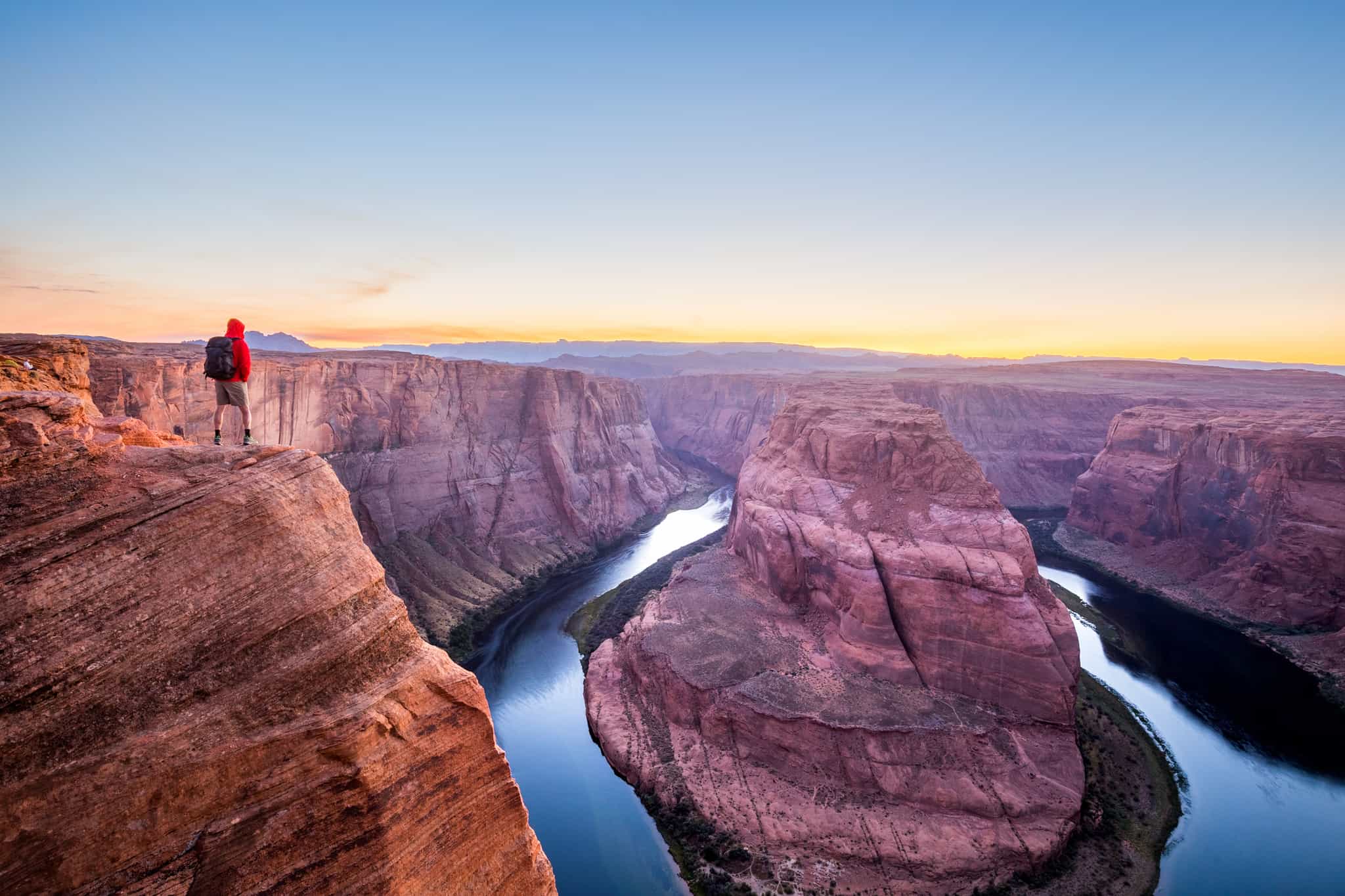
Explore our range of over 200 worldwide adventures
We've got your back
Guaranteed to run
All Much Better Adventures trips are now guaranteed to run. Once you’ve booked your spot you can immediately make your travel arrangements, no uncertainty, no hanging about (excludes 'request to book' departures). Full details
Flexible payments
Secure your spot with the minimum deposit and pay off the remaining balance in as many instalments as you like, with no interest or fees. Full details
Happiness Guarantee
We’re so confident you’ll have an amazing time we’ll put our money on it. Full details
Full financial protection
To give you complete peace of mind Much Better Adventures is backed by ABTOT, ABTA and ATOL memberships. Full details
Tried & Trusted
Much Better Adventures is rated ‘Excellent’ on Trustpilot with over 1000 verified trip reviews averaging 4.8/5.
Connect before you go
You'll be invited to join a WhatsApp group to get to know each other before your big adventure together. Full details
DEPARTURE DATES
Saturday 1st November 2025
to Monday 10th November 2025
Unlock member prices


